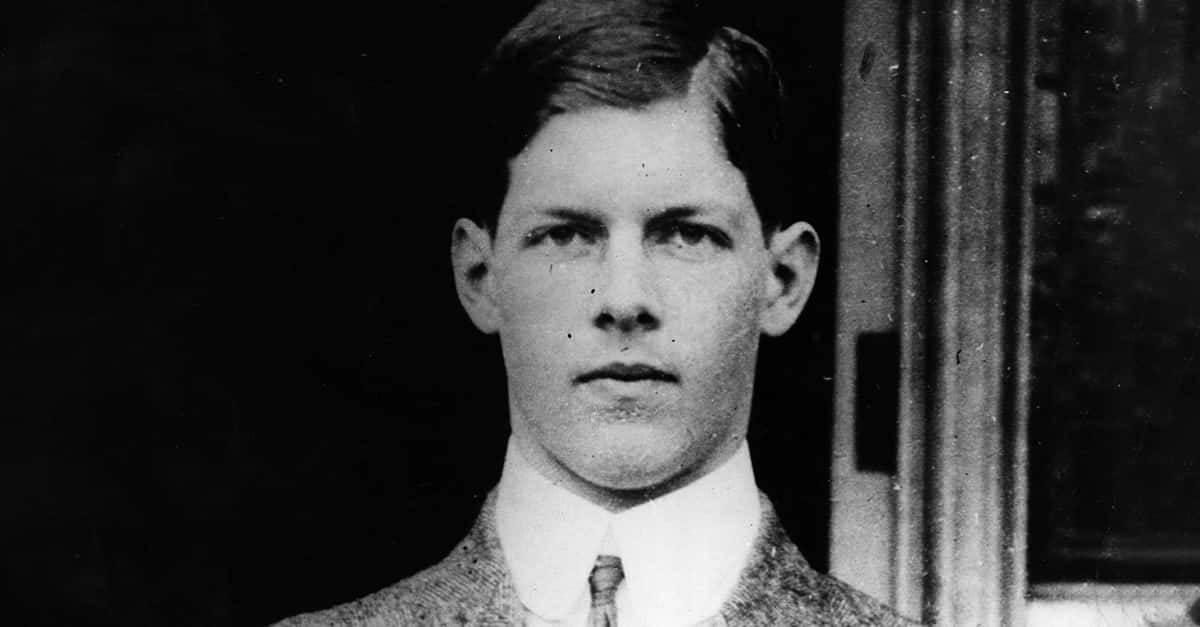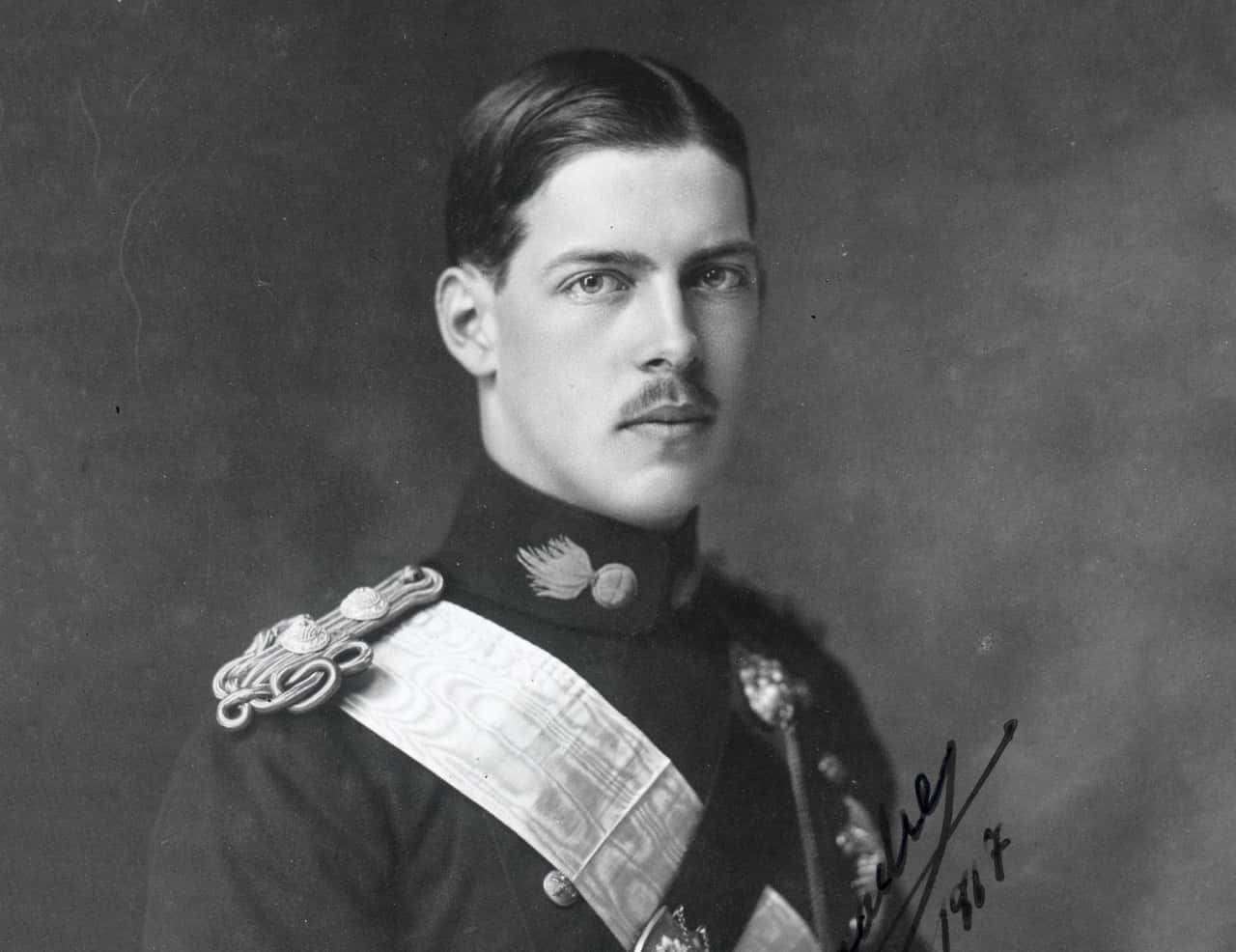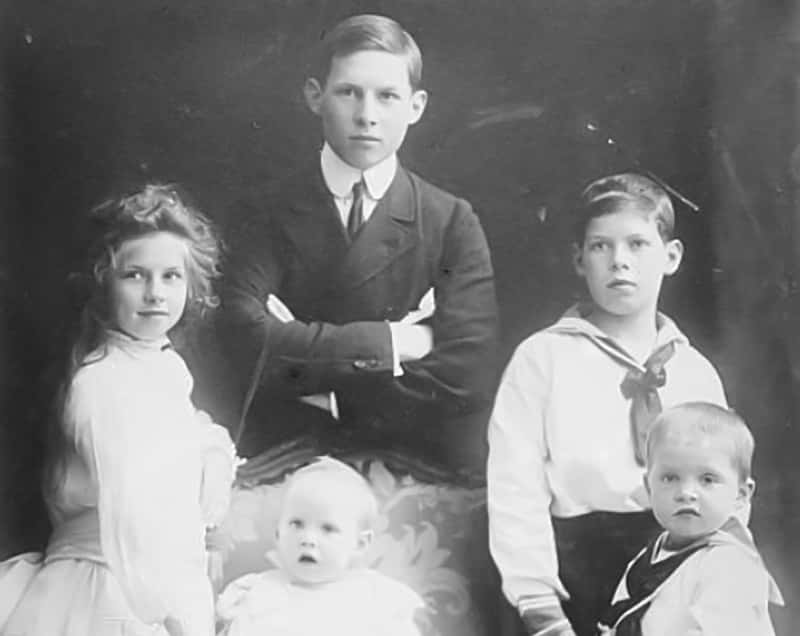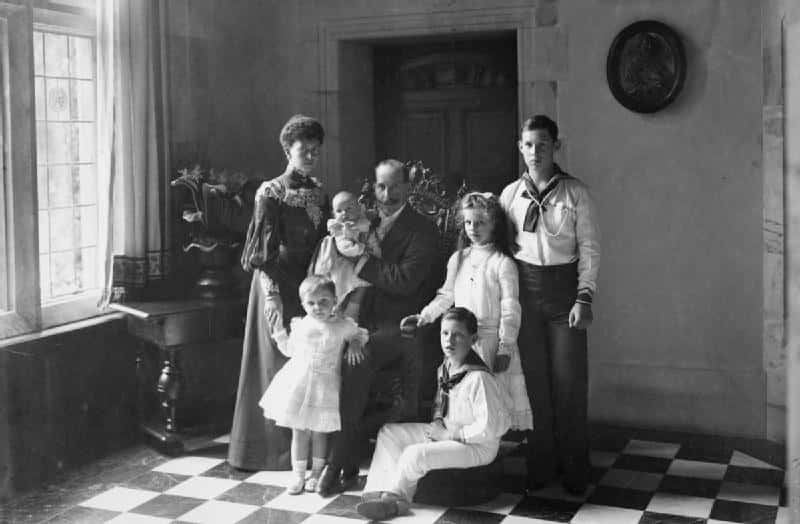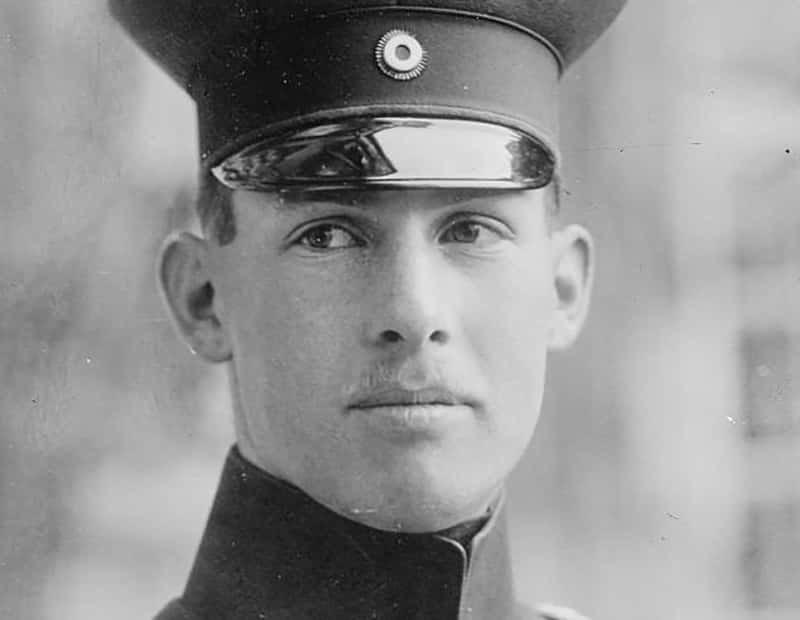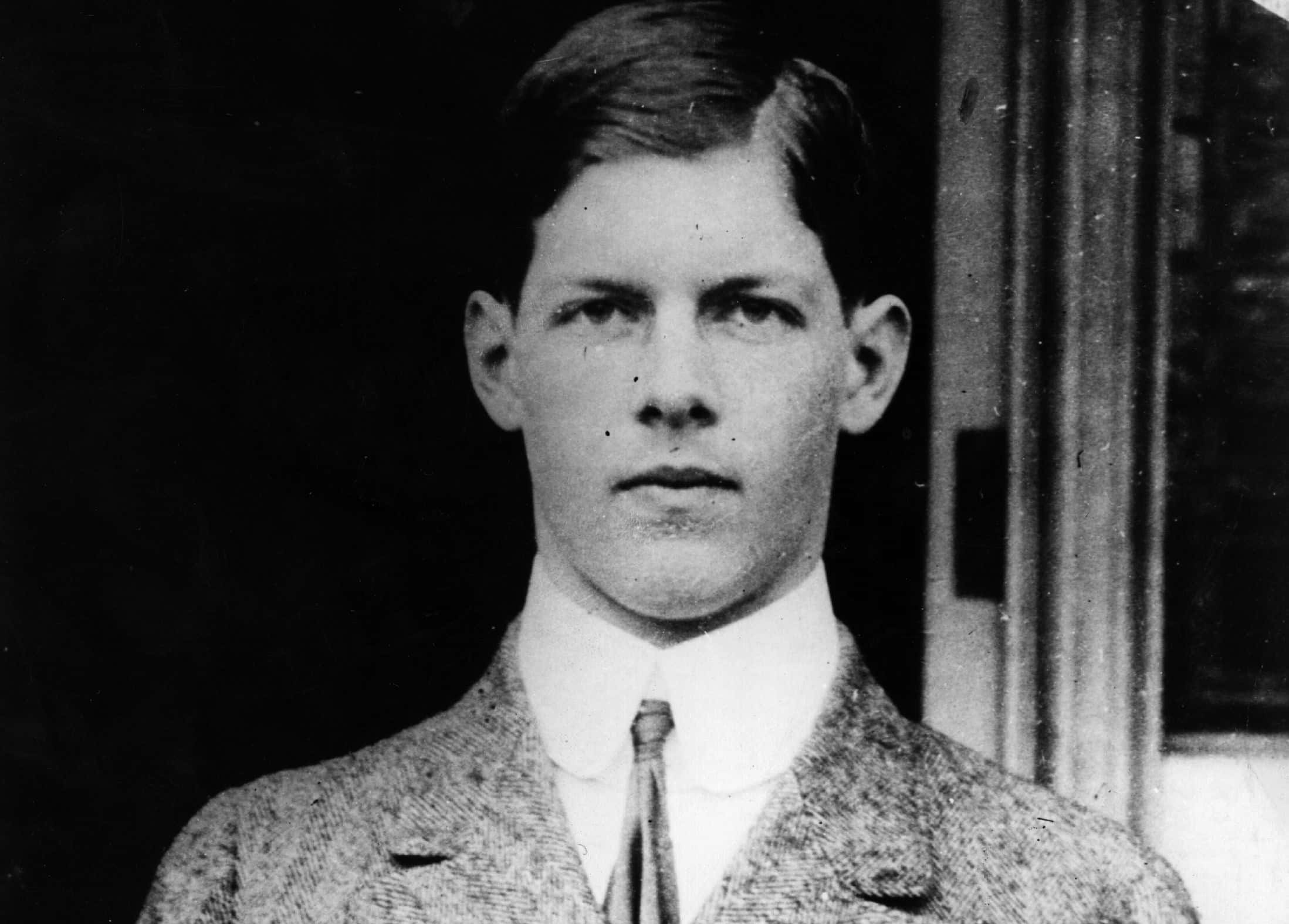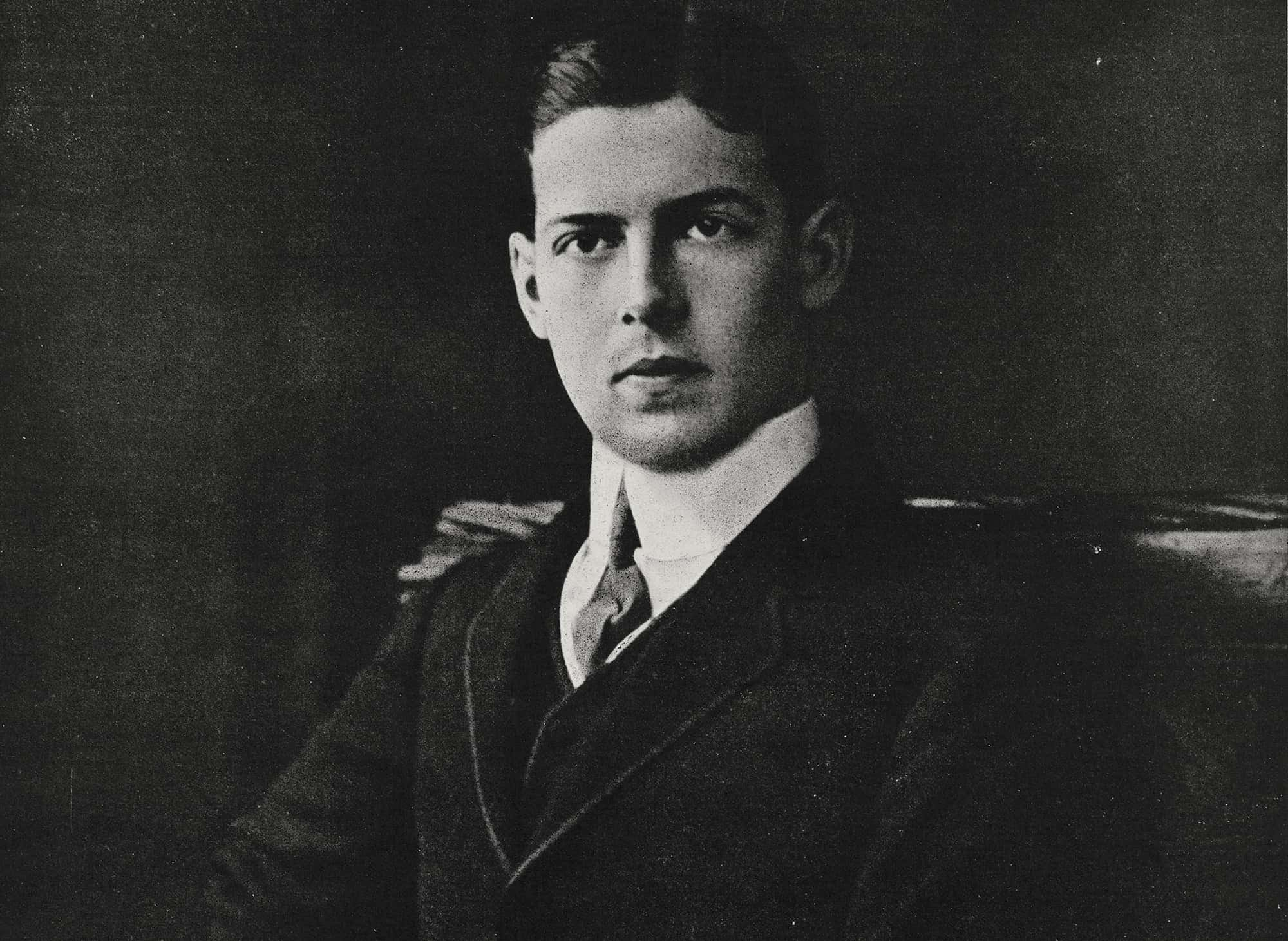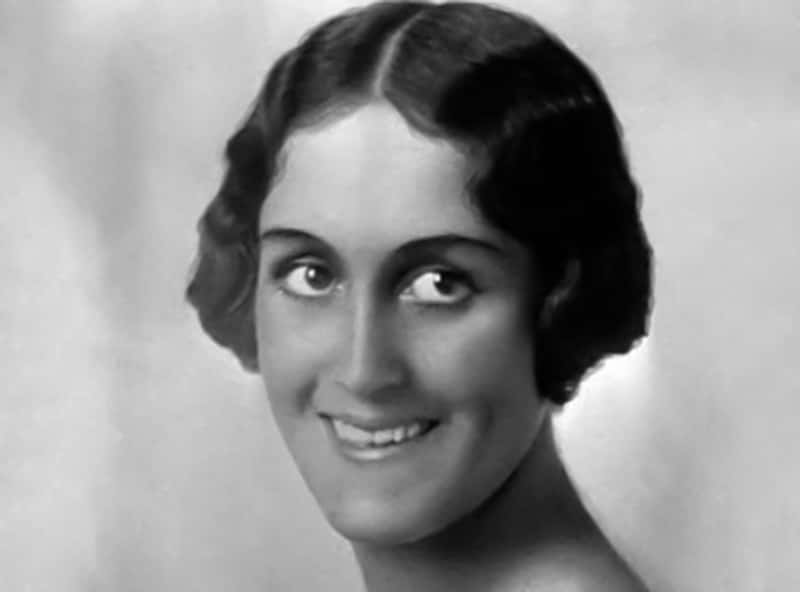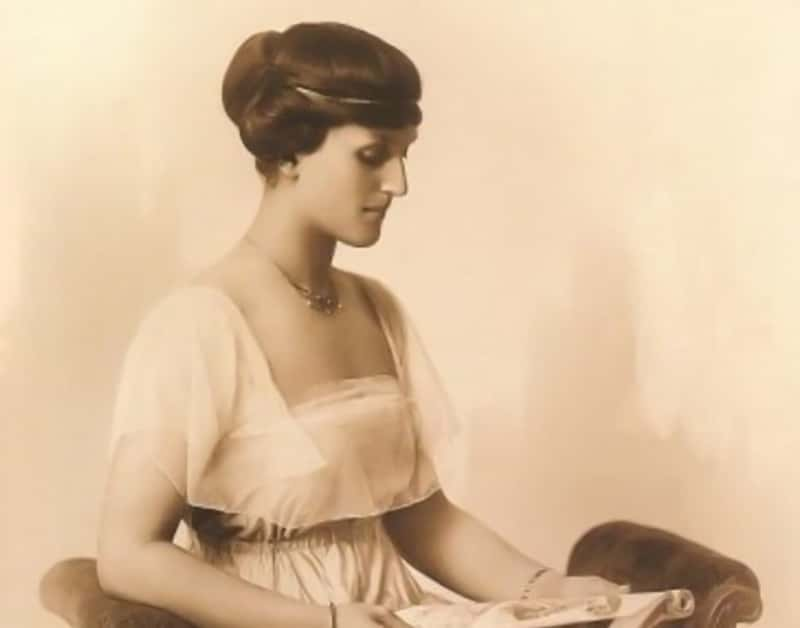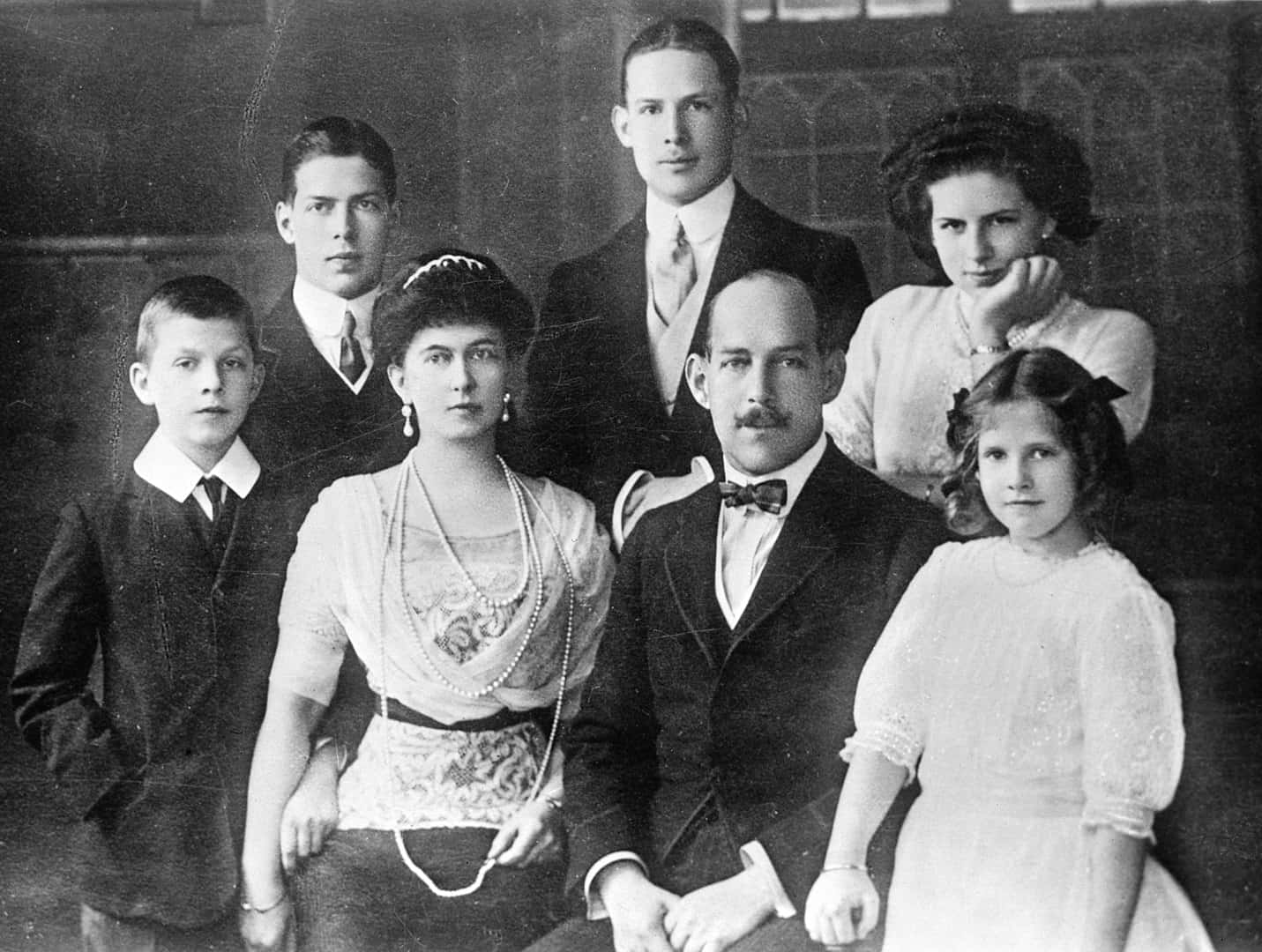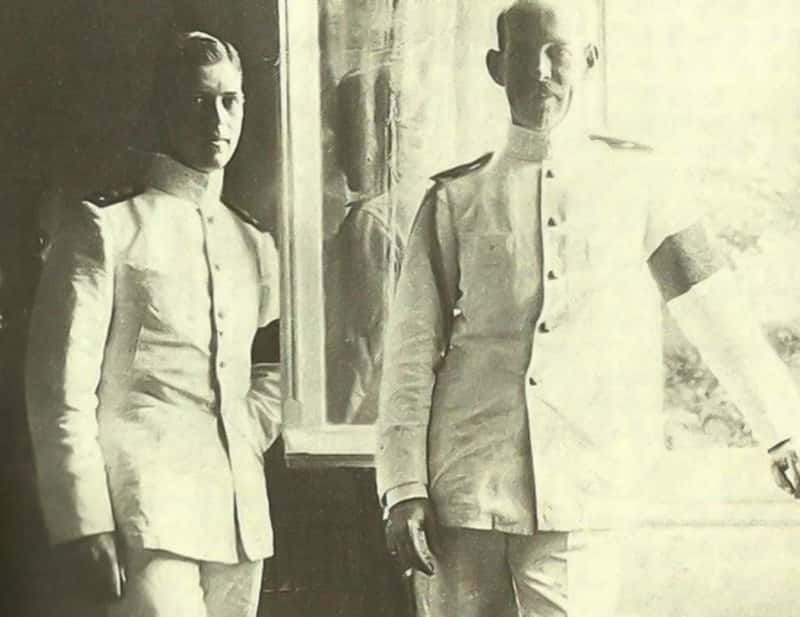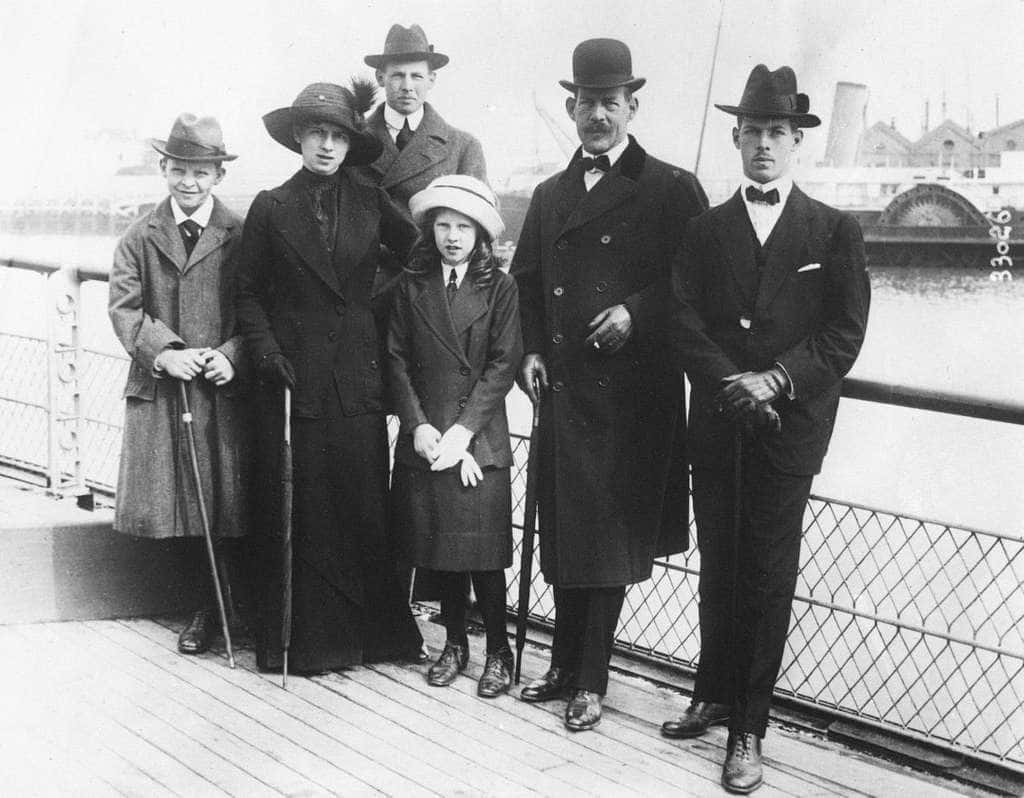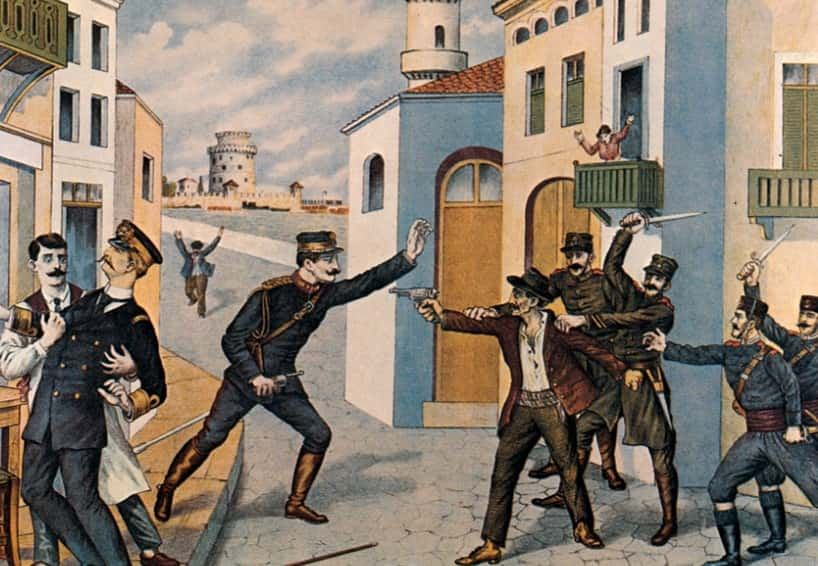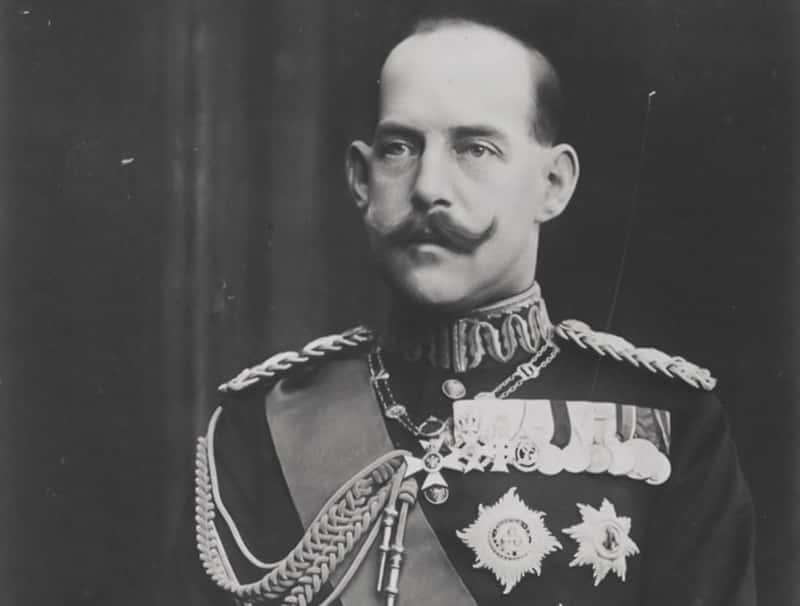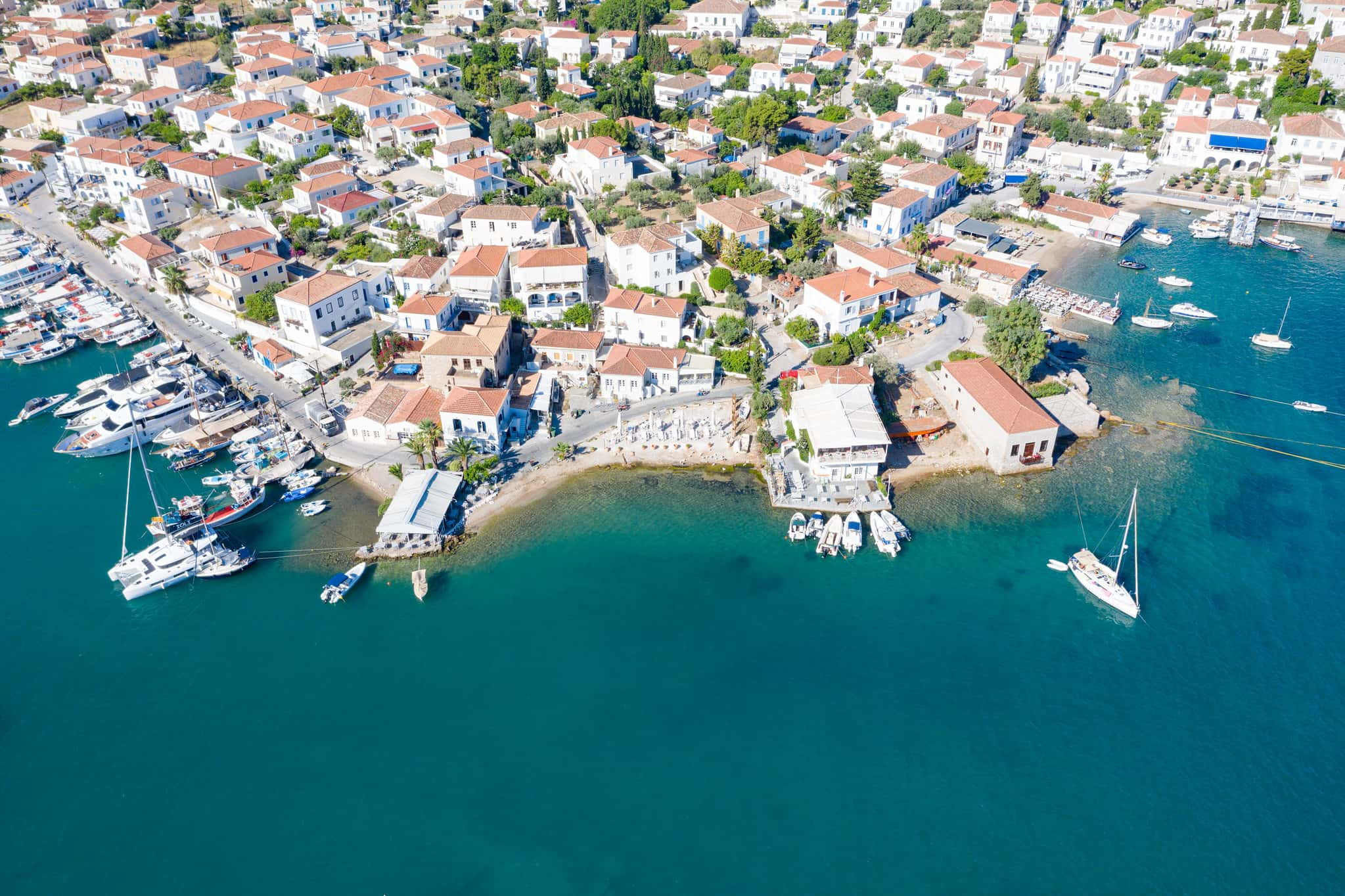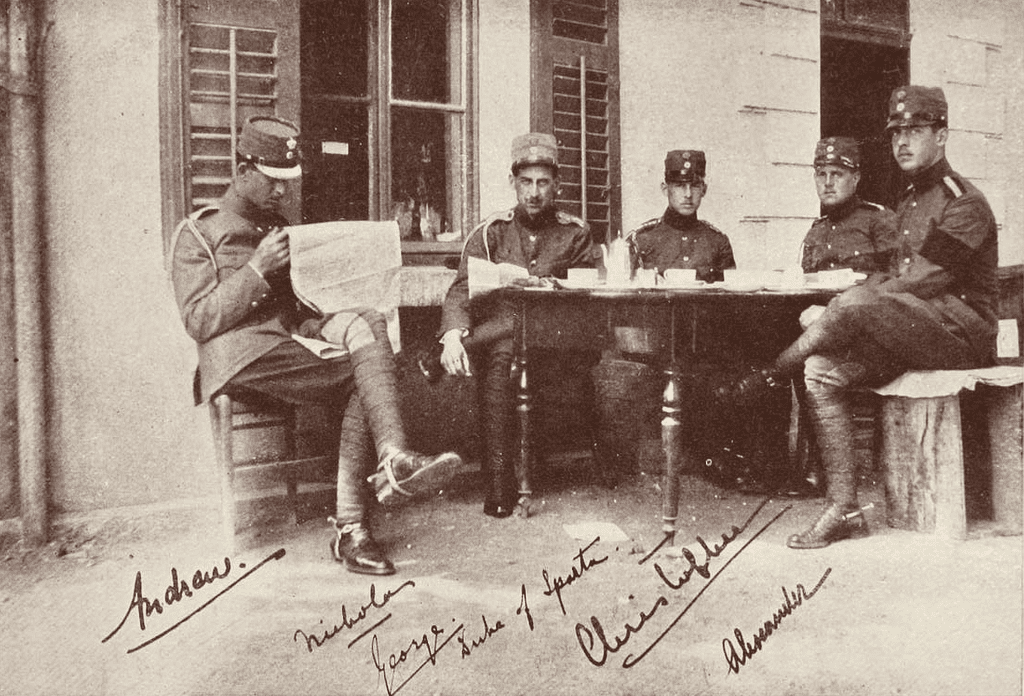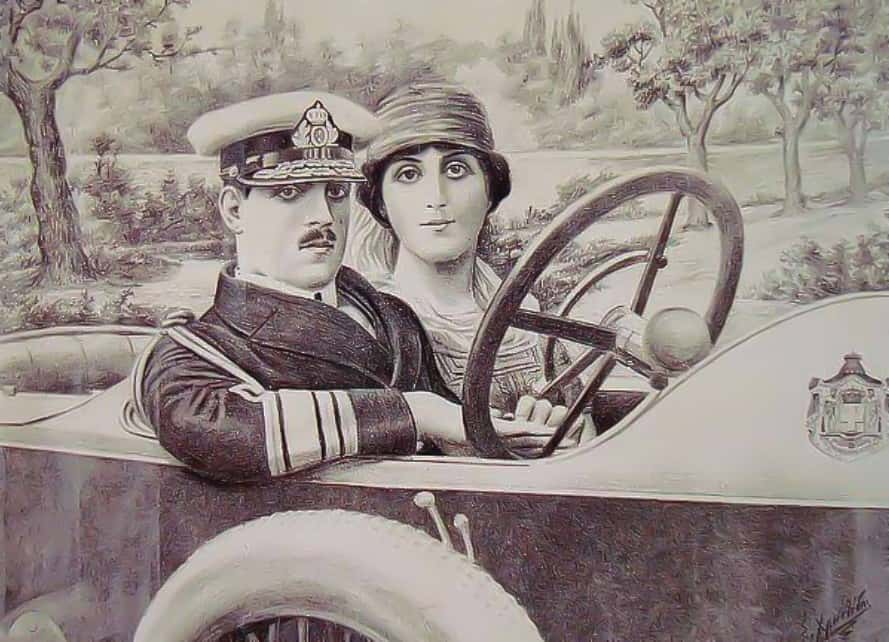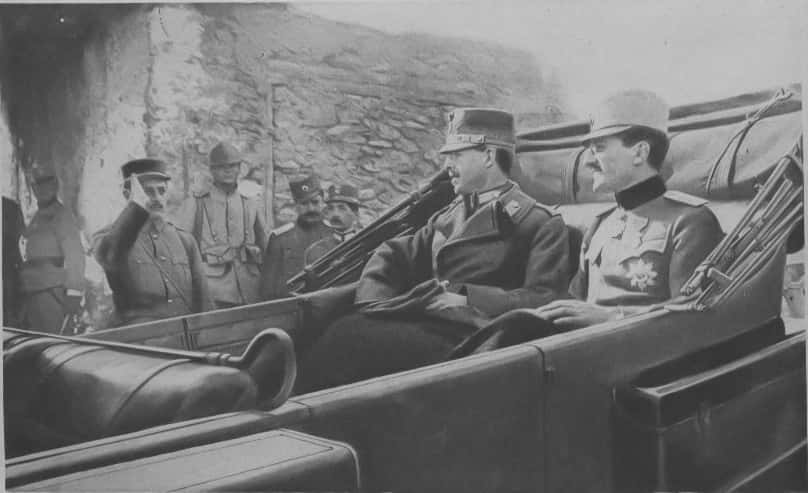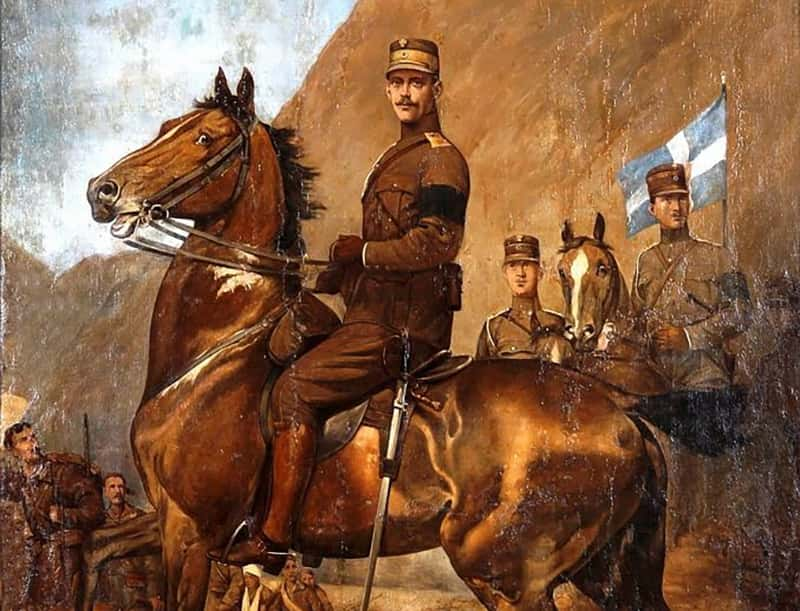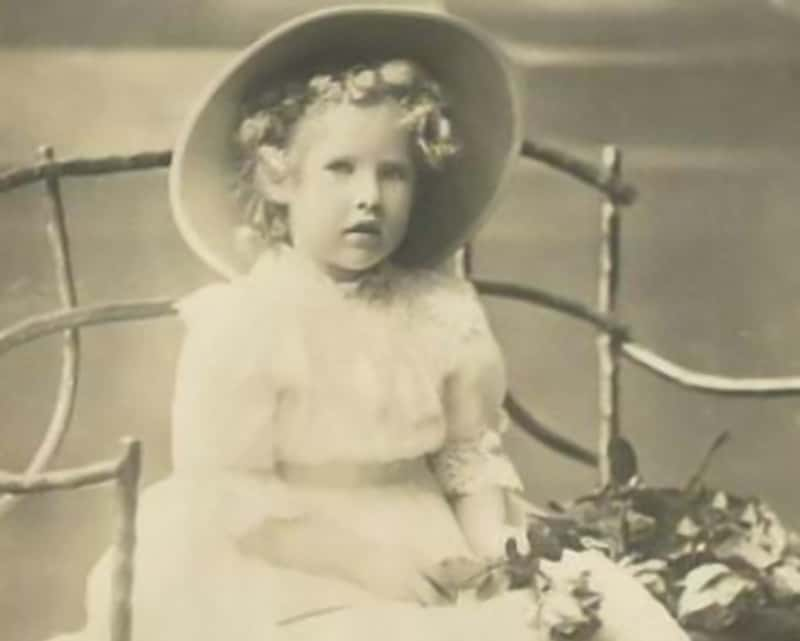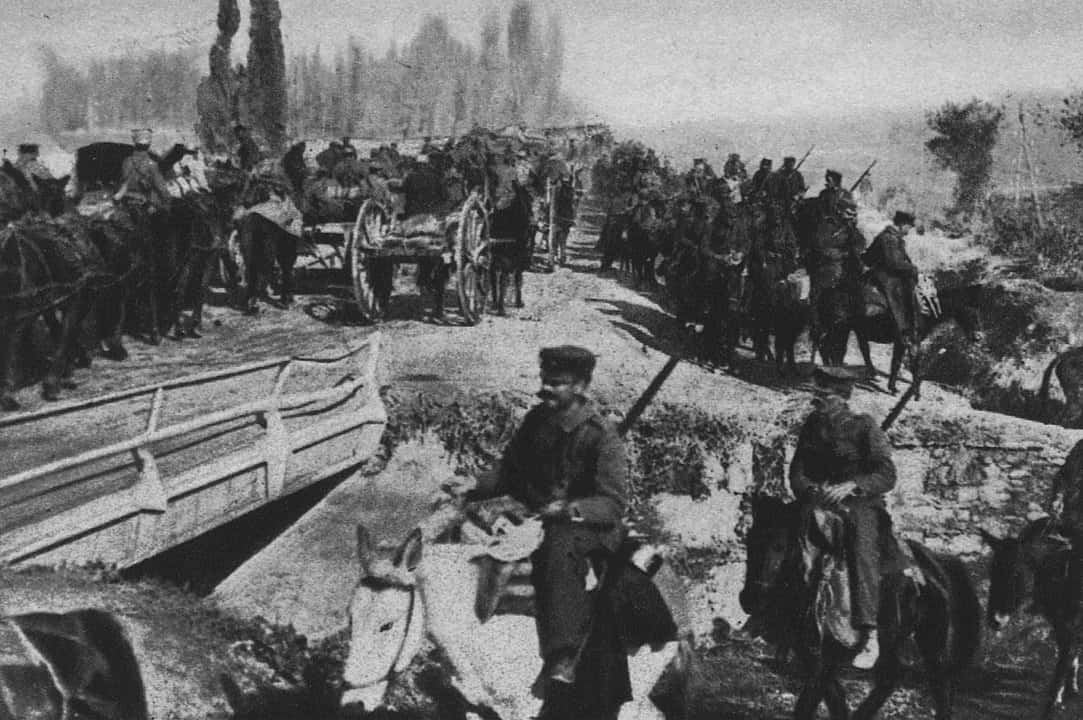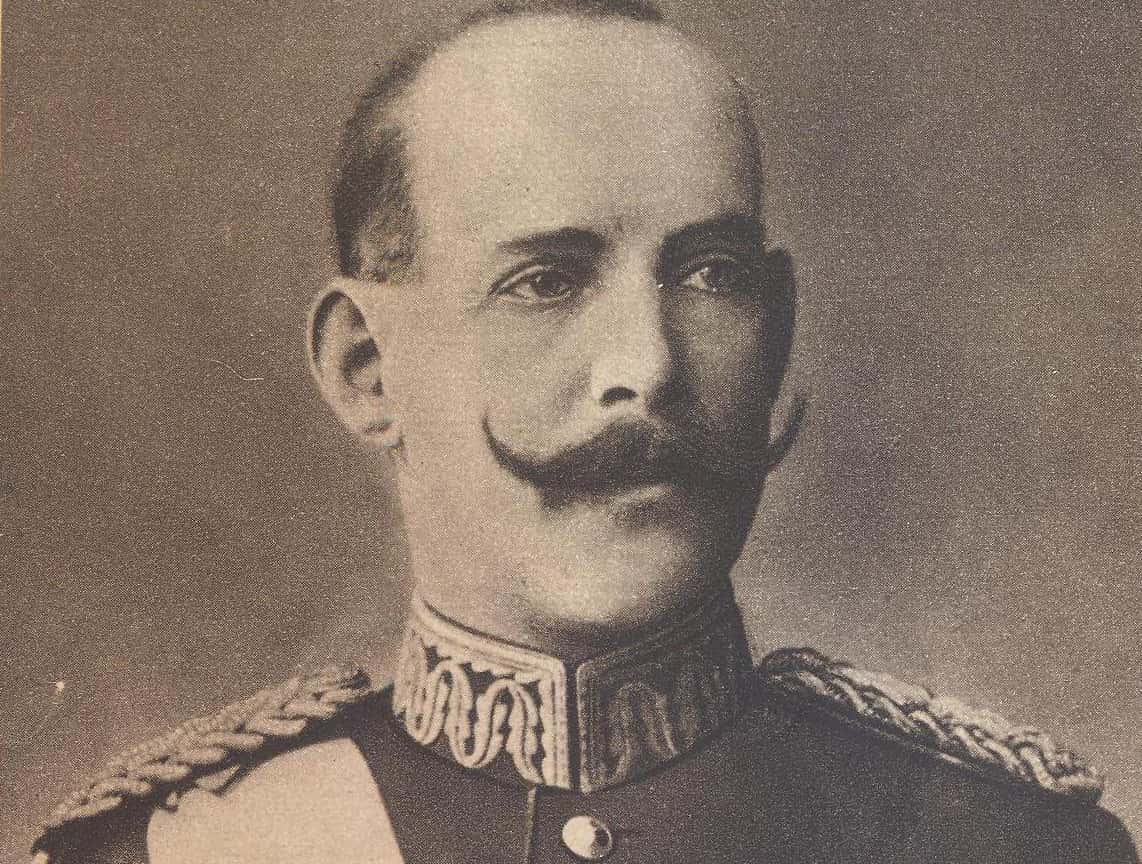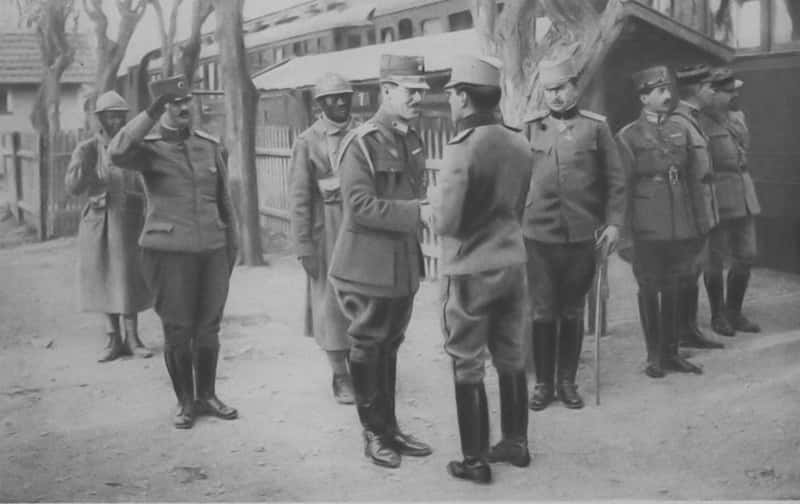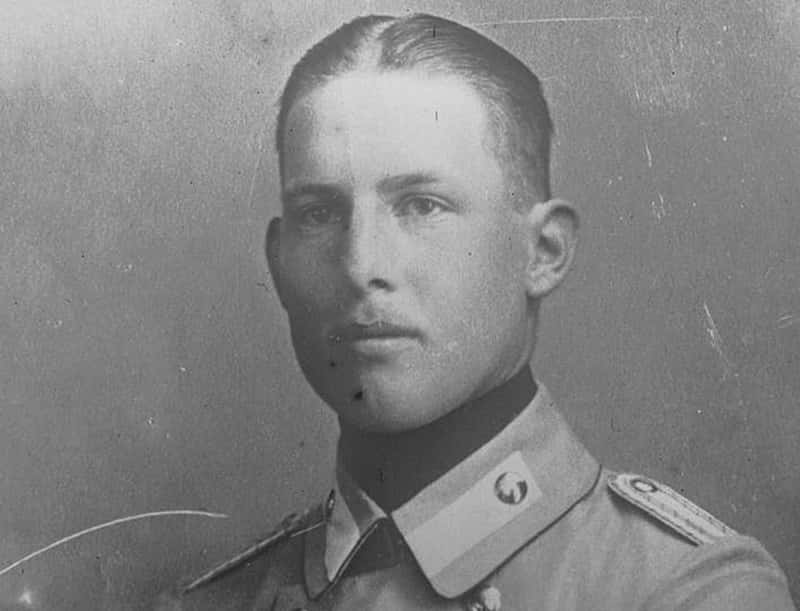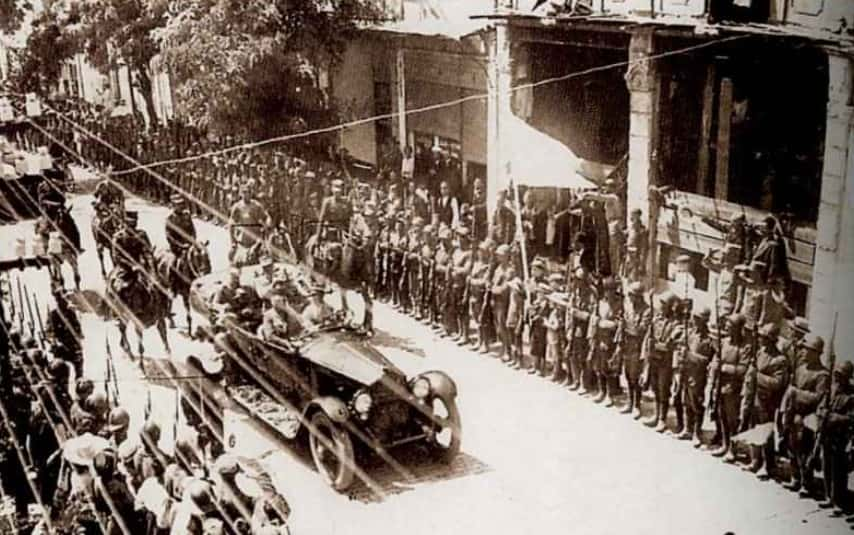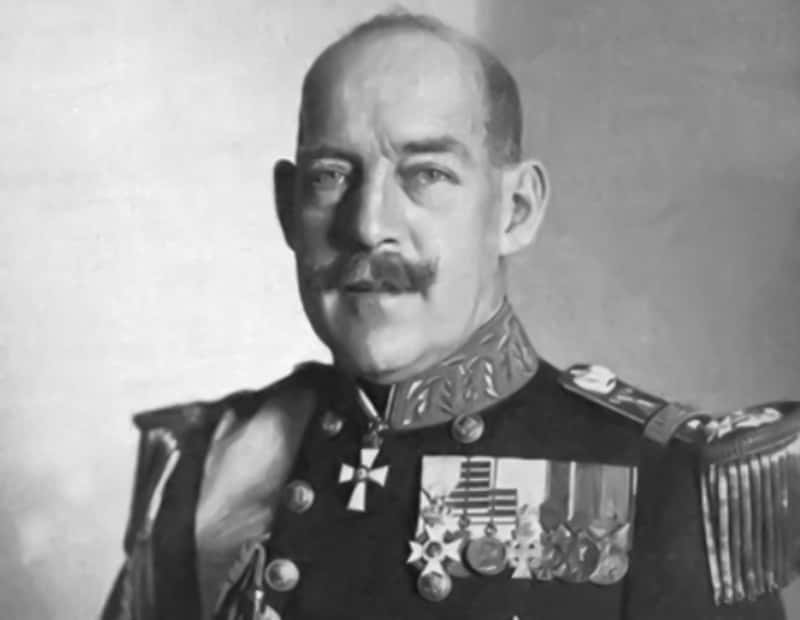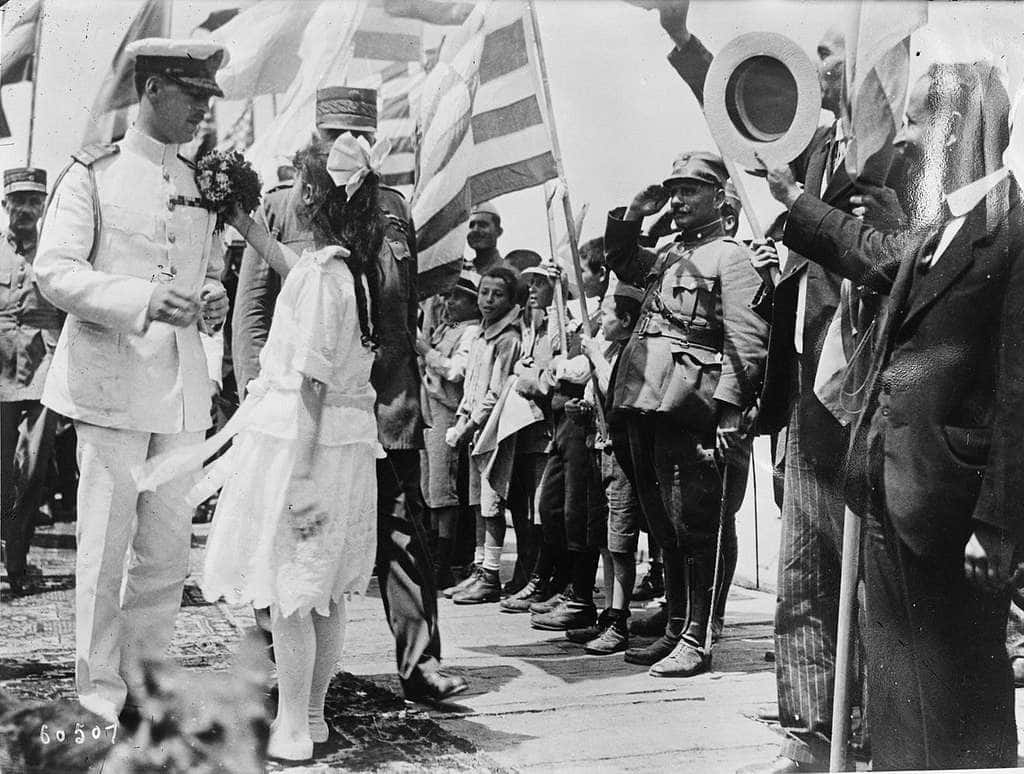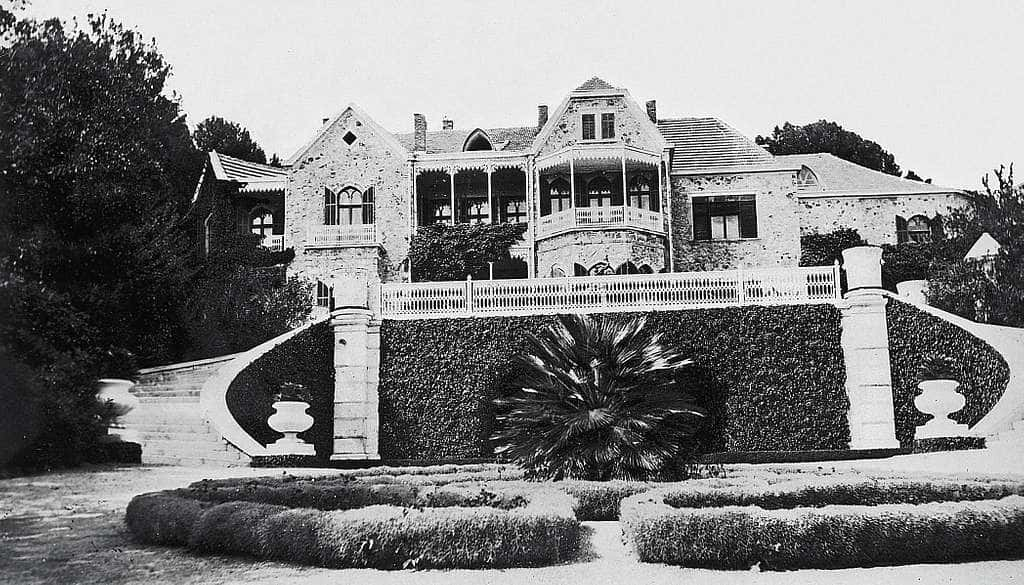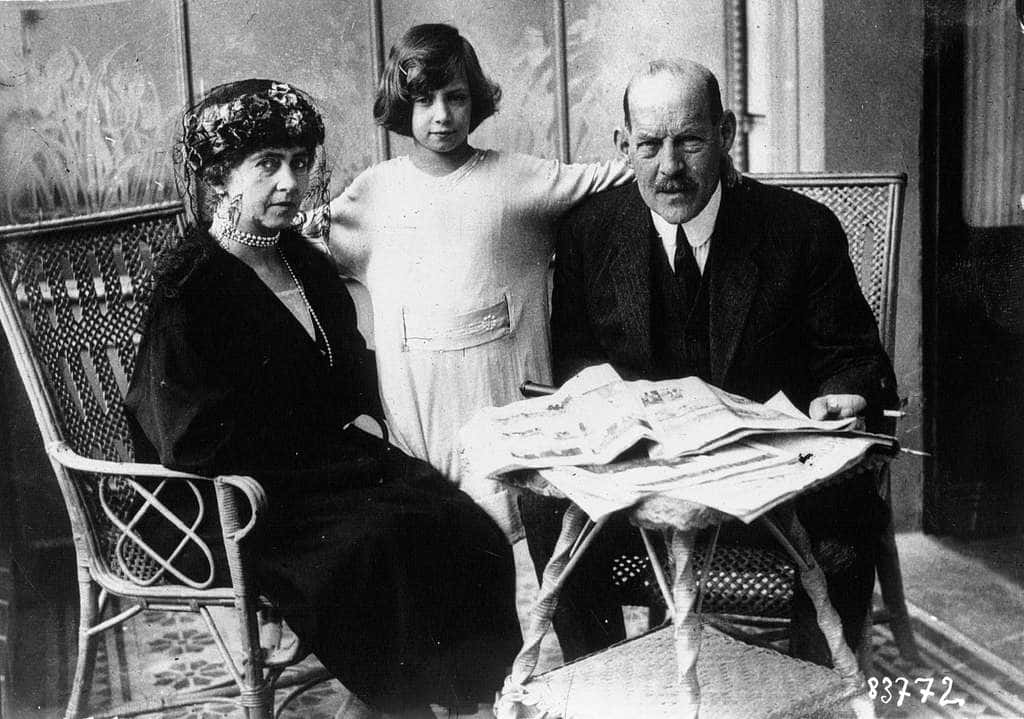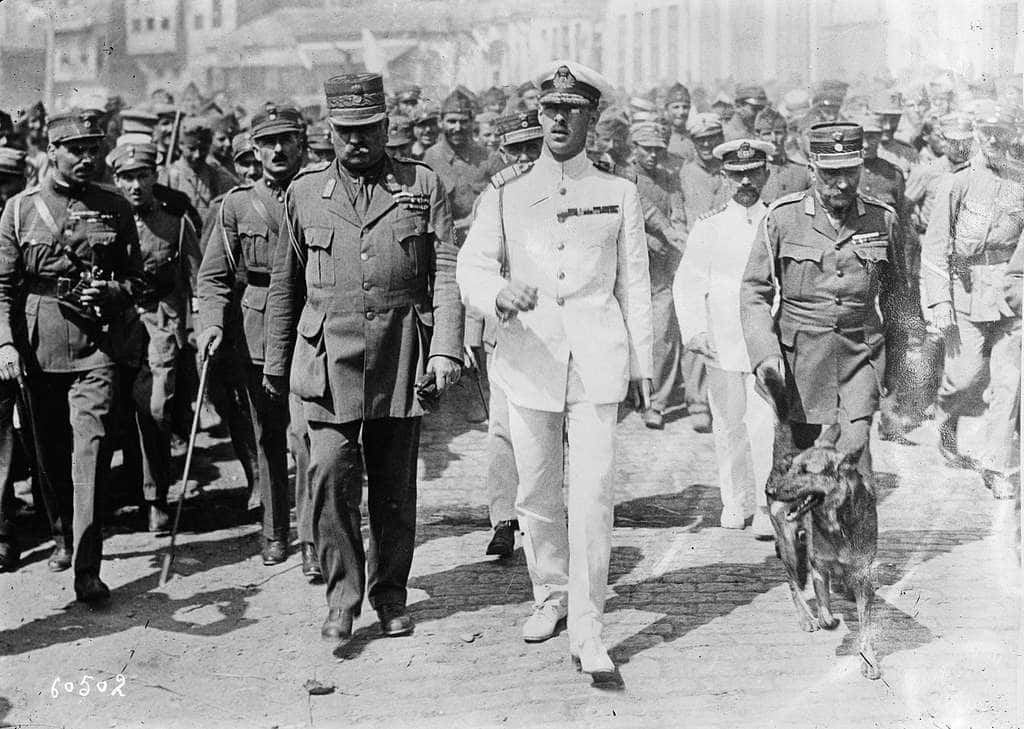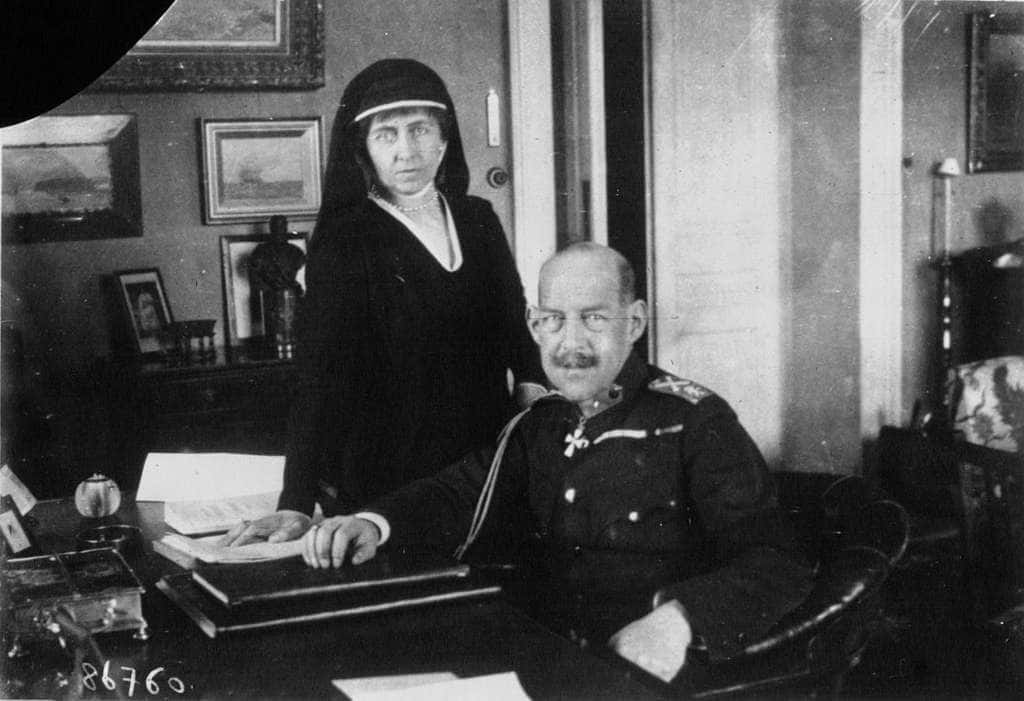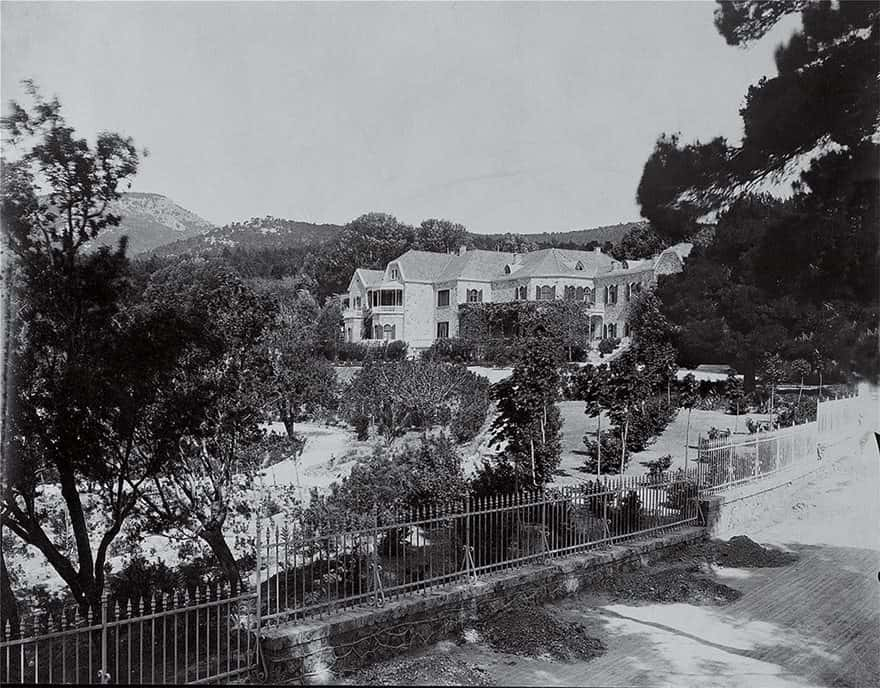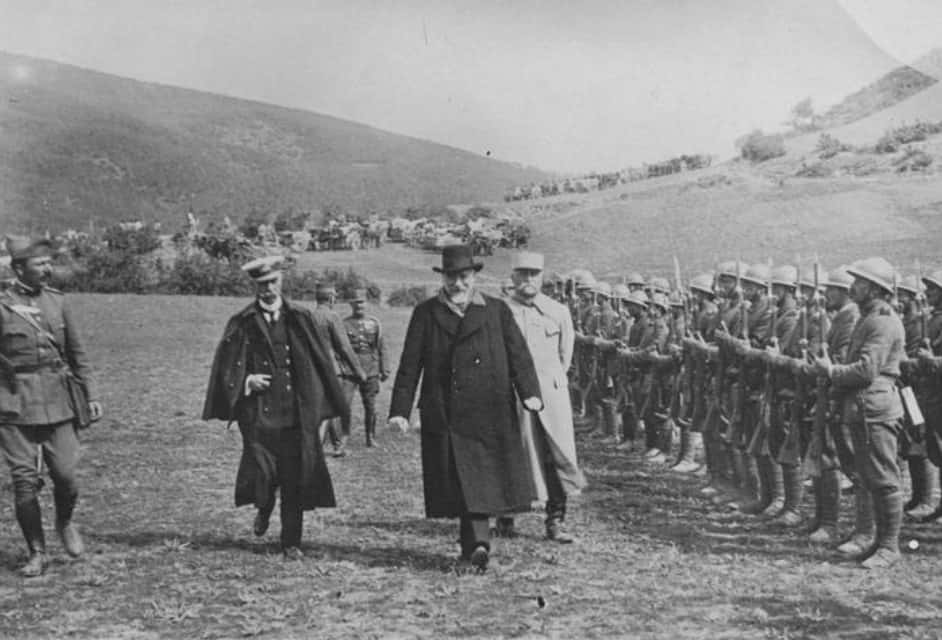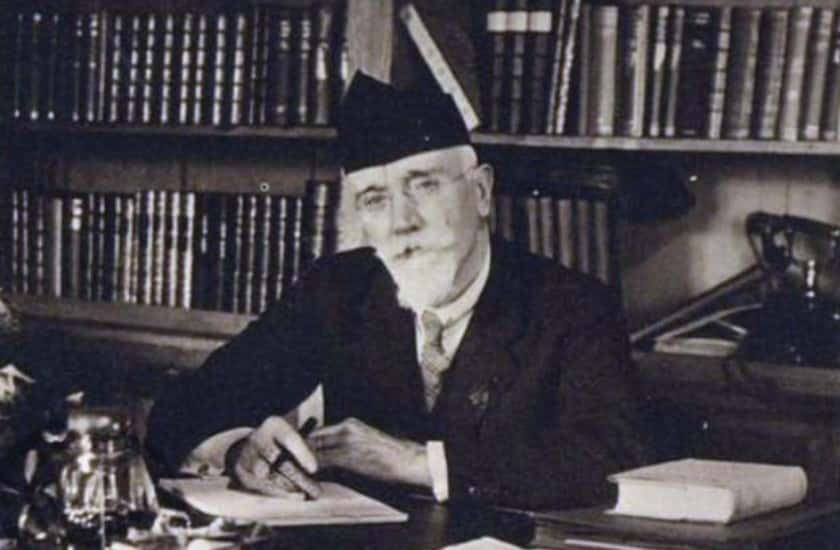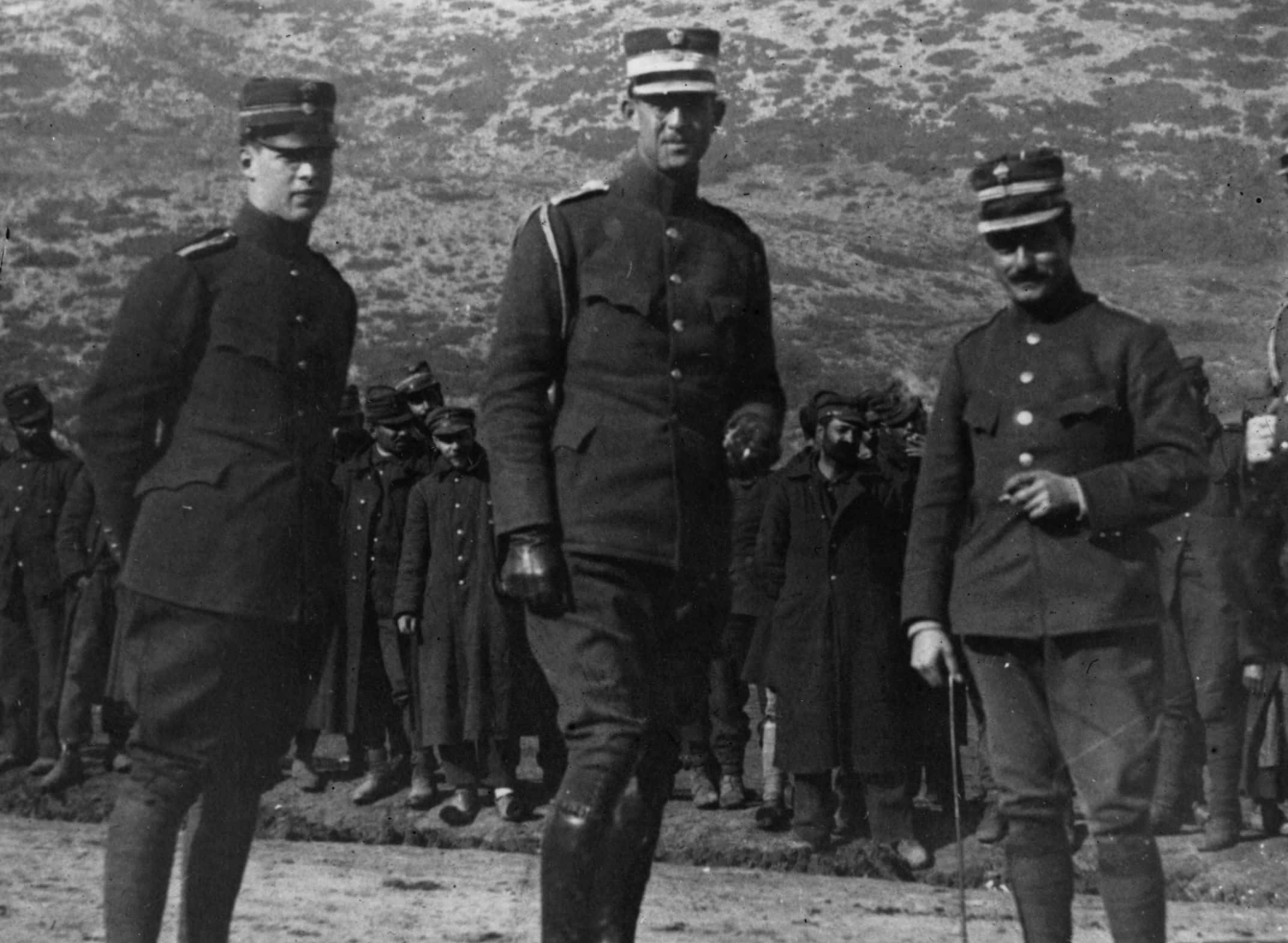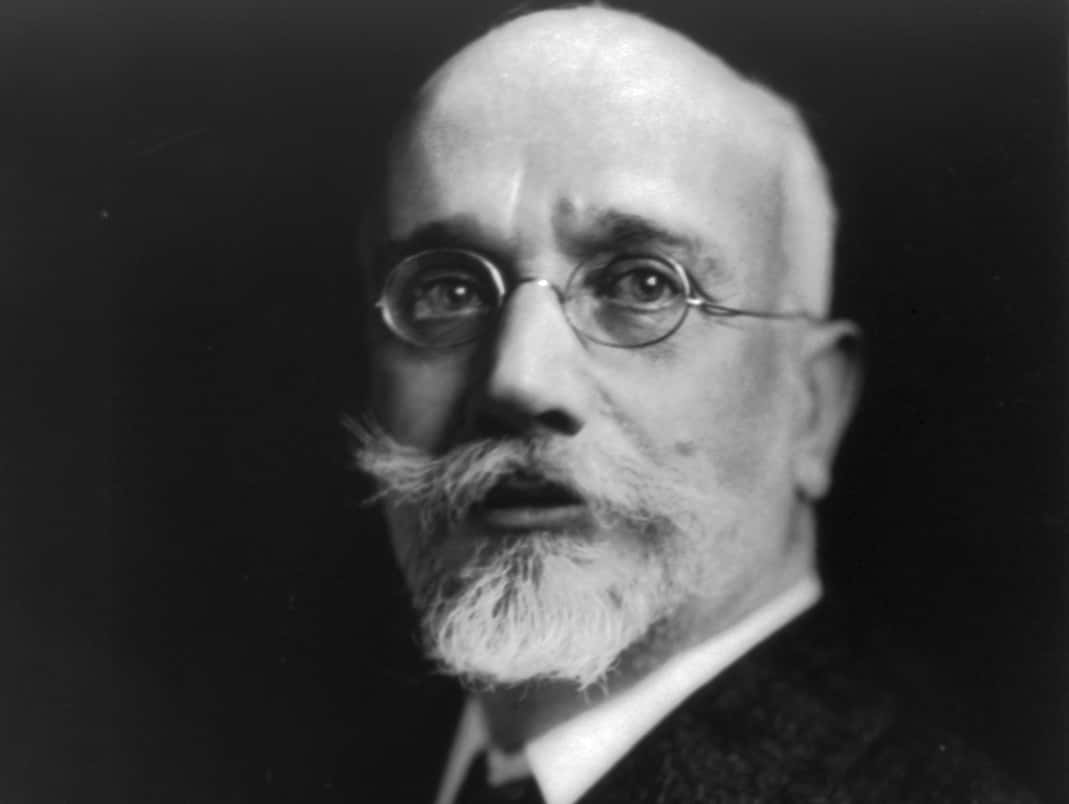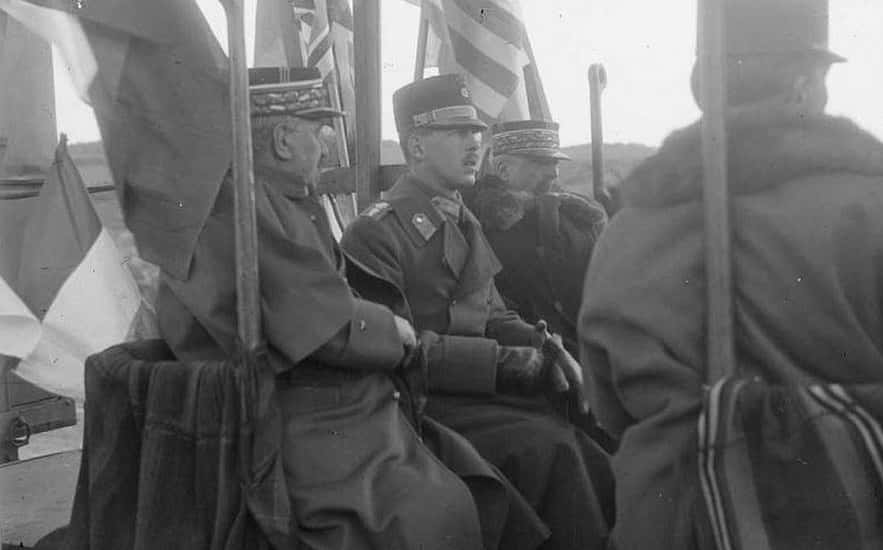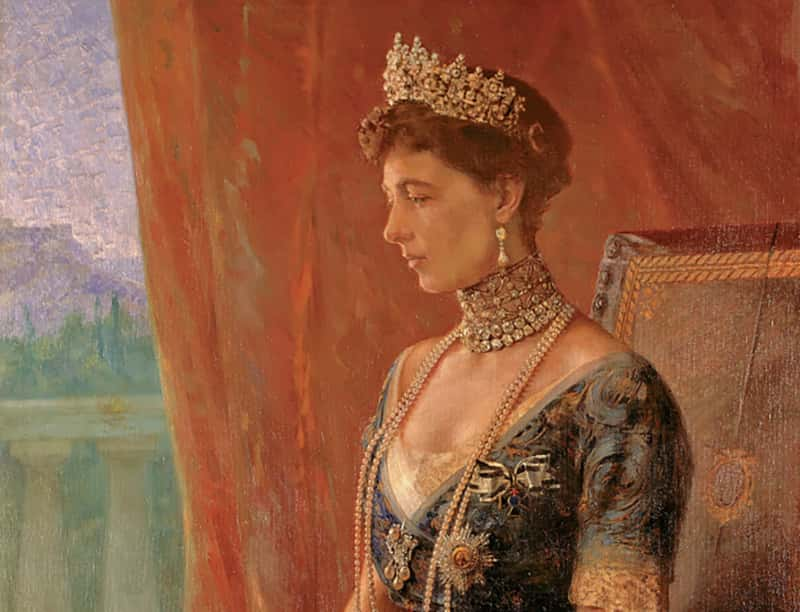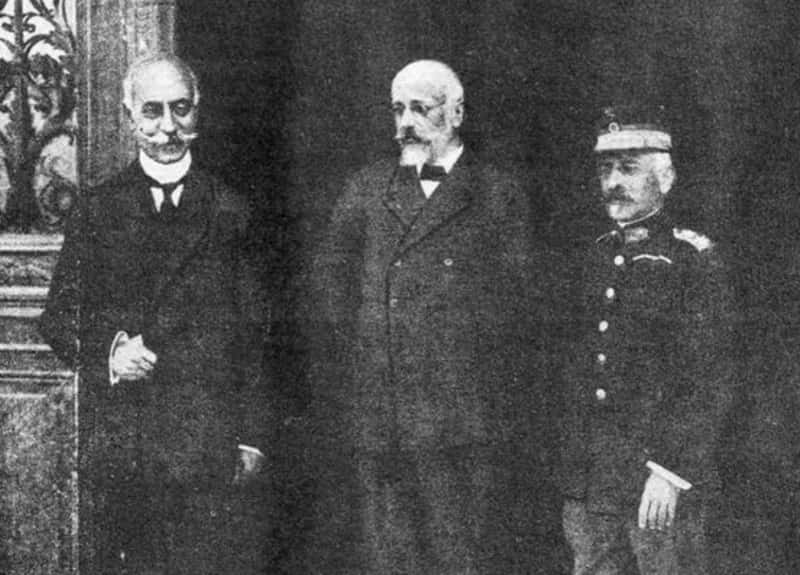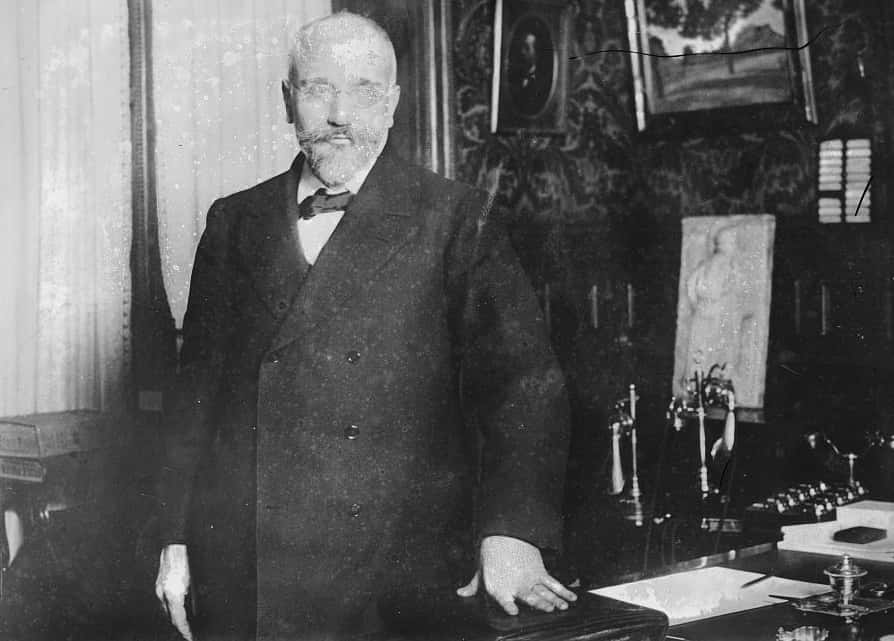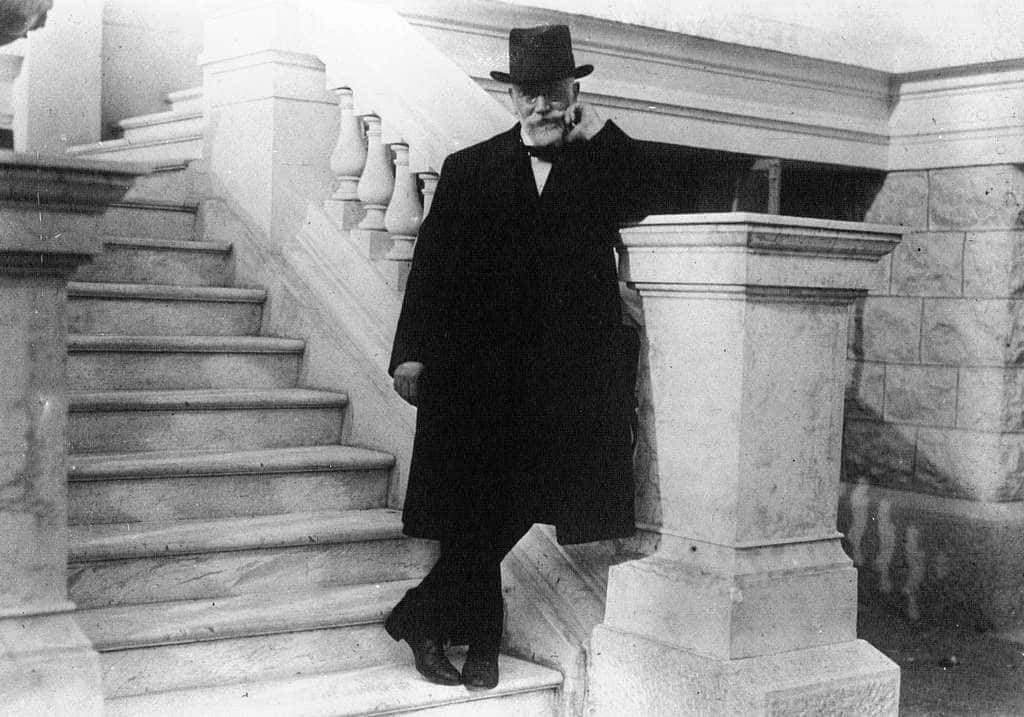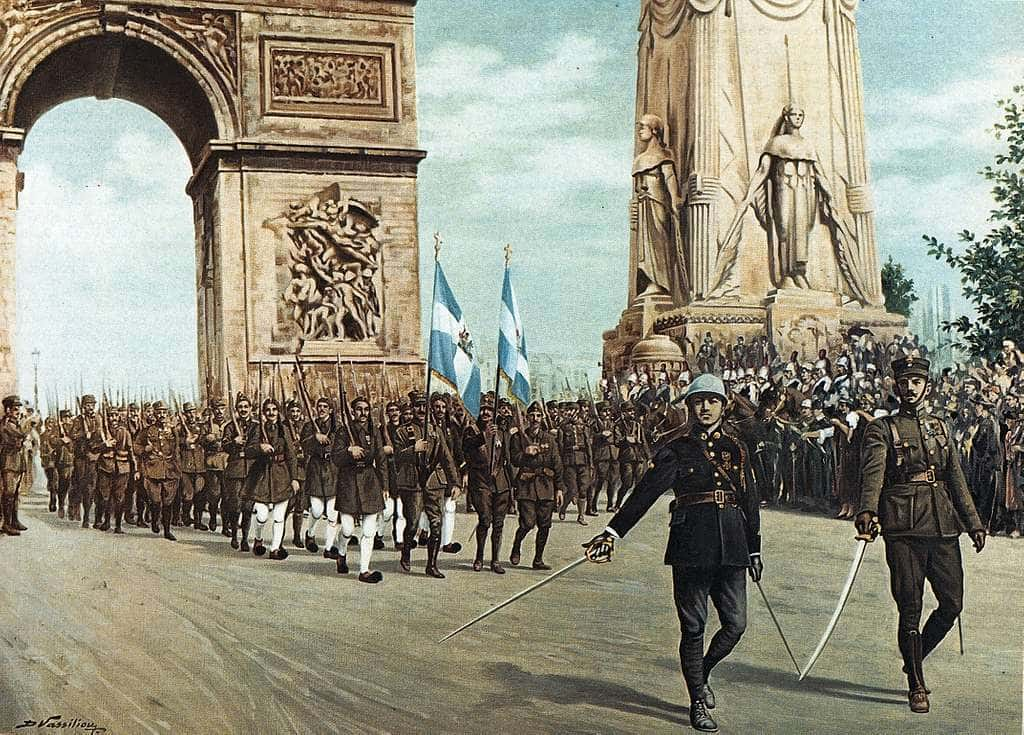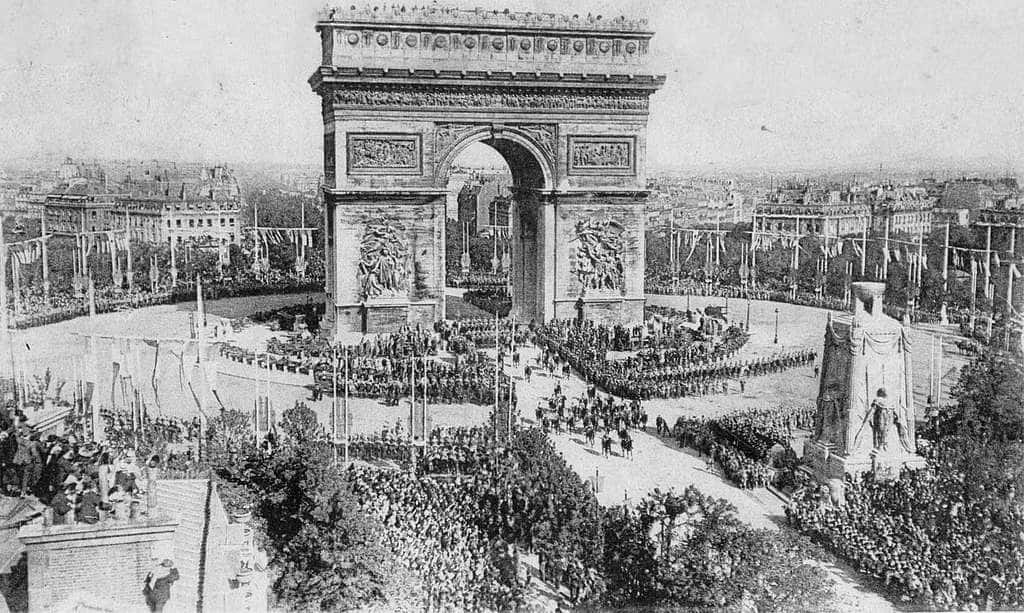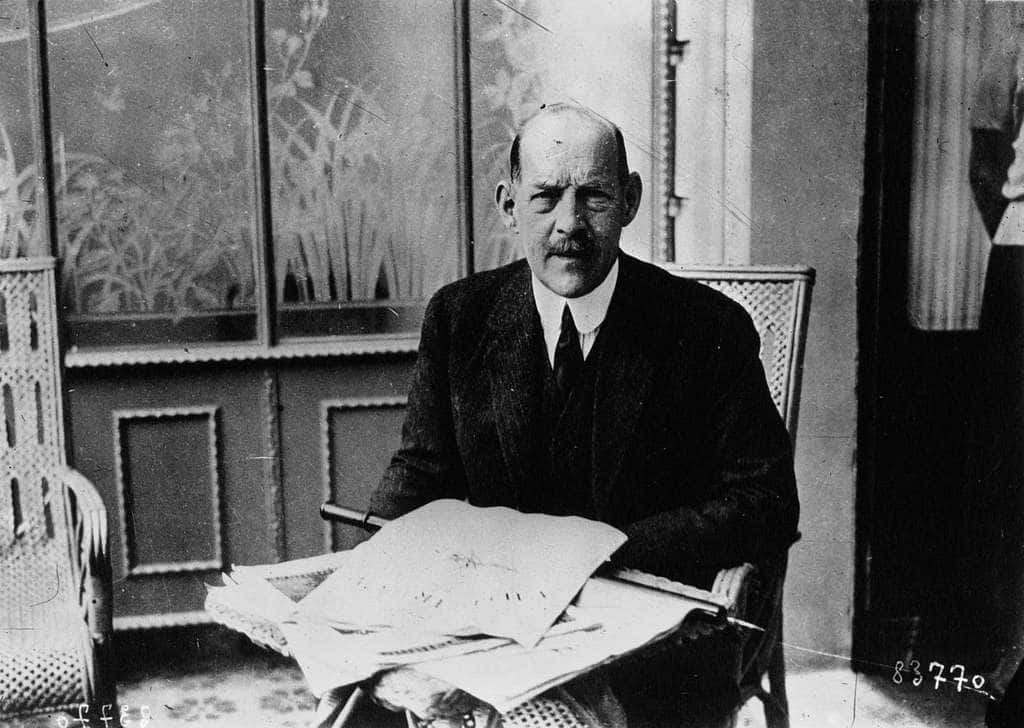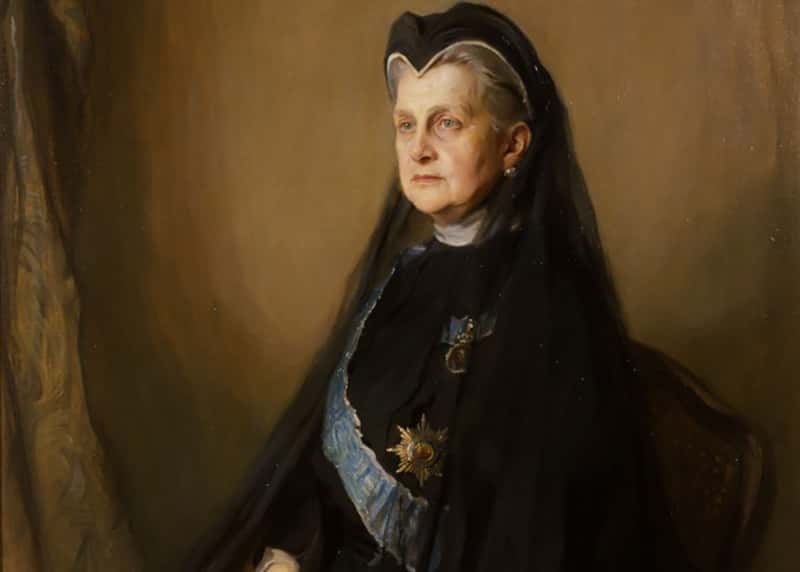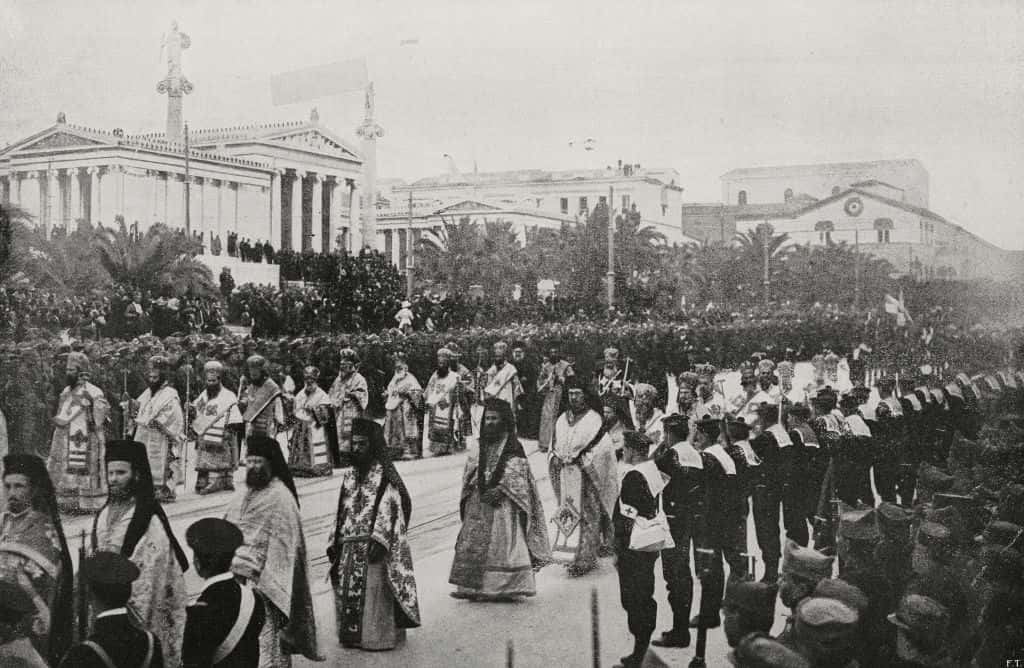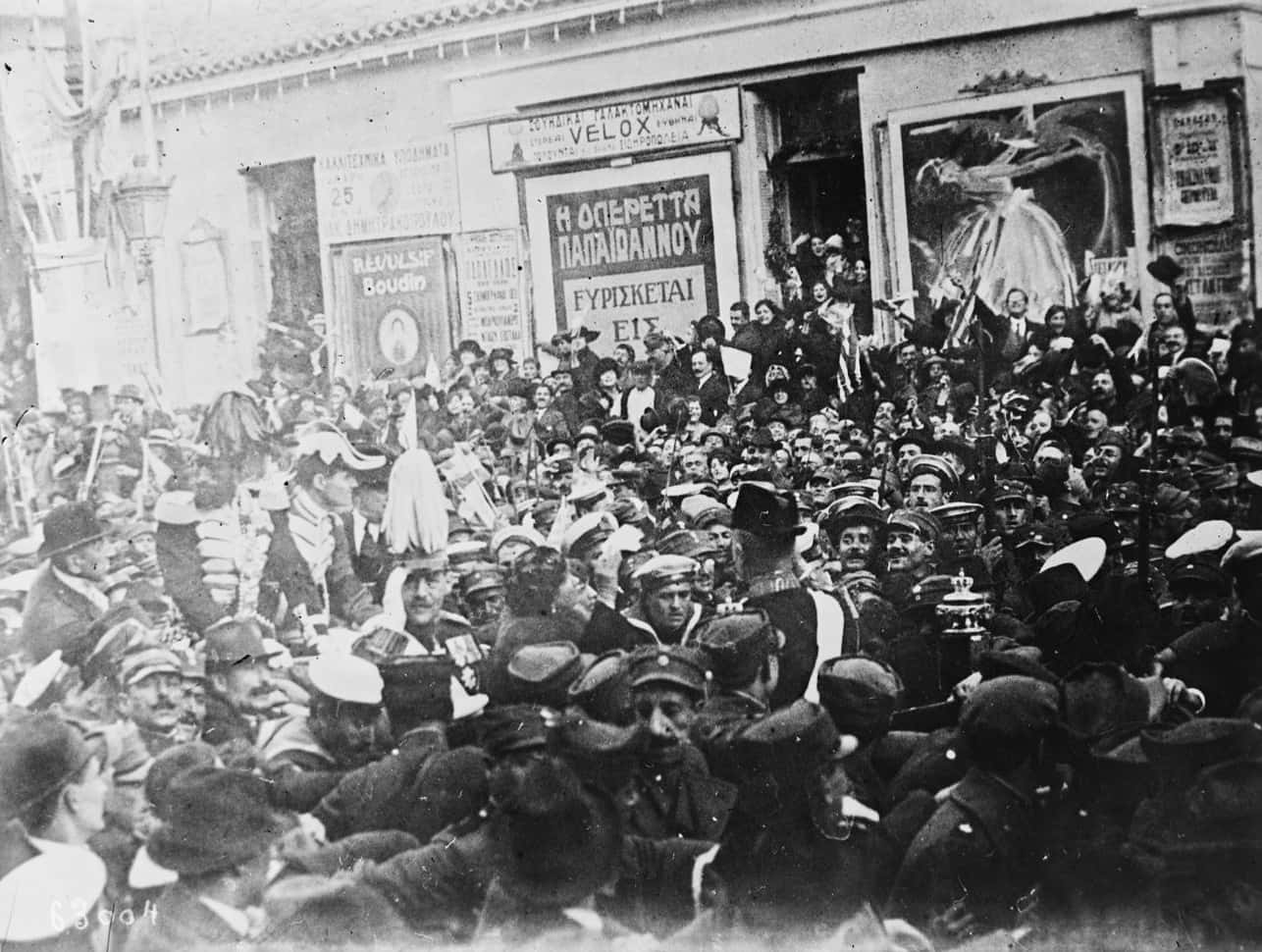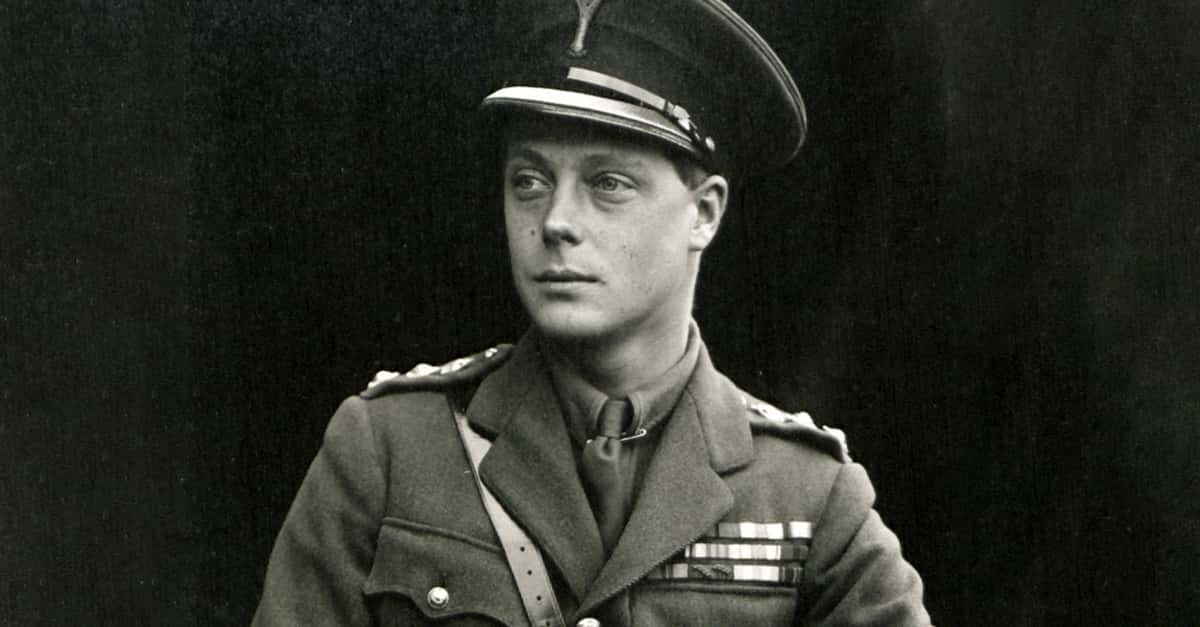Alexander was the (puppet) King of Greece for most of WWI. While this rebel-turned-regent technically had no power, he still managed to cause a royal raucous. Whether it was fatal car crashes, palace fires, forbidden loves, or monkey business, Alexander caused everyone around him a great deal of grief. Read these wild facts about Alexander, Greece’s puppet king—and try to guess the twist ending.
1. He Was Royally Royal
Alexander of Greece was born in 1893 to one of the most royally connected households in Europe. By way of his father, he was connected to the royal houses of Denmark, Russia, and the United Kingdom. And for good measure, his mother was directly related to the royal house of Germany. But Alexander was always something of an outcast.
2. He Was A Royal Pain
By all accounts, Alexander was a royal terror. By the time he was barely out of diapers, he had already developed a reputation as a gregarious mischief-maker. He was rolling his own joints with blotting paper—before it was cool—and setting fire to various rooms throughout the palace. It was probably all a desperate cry for attention.
3. He Threw His Brother Into The Bushes
Alexander of Greece was the second of six children and sibling rivalries were bound to spark up—but Alexander took things too far when it came to his younger brother Paul. One day, he loaded the toddler-aged Paul into his toy car and drove it recklessly until he launched the kid six feet into a thicket of brambles. He claimed it was an accident.
4. He Didn’t Have Any Brotherly Love
Alexander’s “roguish rebel” routine alienated him from his family. For example, he and his responsible, somber-minded older brother, George II, famously butted heads in their youth. And, as they got older and the struggle for the crown came into play, their relationship would only get worse…and all of Greece would pay the price.

History's most fascinating stories and darkest secrets, delivered to your inbox daily.
5. He Was A Gear Head
Even before he had a driver’s license, Alexander of Greece had already racked up a few car accidents—just ask his younger brother, Paul. But that didn’t stop Alexander from jumping behind the wheel whenever he could. As an automobile enthusiast, Alexander was among the first people in Greece to own a car—and collect speeding tickets.
6. He Was A Ladies Man
Living life in the fast lane was just how Alexander liked it. In addition to his infamous, attention-seeking escapades, Alexander quickly developed an even more scandalous reputation. See, he was quite the ladies’ man. Allegedly, well before his 21st birthday, Alexander had a long list of female companions. But only one of them had his heart.
7. He Fell Madly In Love
At a party in 1915, everything changed for Alexander of Greece. He was ready to forget his rebellious ways and become a one-woman man. And it was all because of Aspasia Manos. Alexander and Manos had been childhood friends but, in the intervening years, Manos had blossomed into an enchanting woman. And Alexander was spellbound.
8. He Snagged A Classical Beauty
It’s not hard to see how Alexander fell in love with Manos—her beauty was almost beyond words. Nevertheless, Compton Mackenzie, the British writer tried to pay credit to Manos’ good looks when he wrote, “She was tall and her skin remembered the beauty of classical Greece”. Her beauty and charm made it seem like she had it all—but there was just one problem.
9. He Was One Of The Common Folk
As the daughter of Colonel Petro Manos and his wife, Maria Argyropoulos, Aspasia was technically an aristocrat. Her mother could even trace her lineage back to princely lines from places like Transylvania and Moldovia. But, compared to a prince from a ruling house like Alexander, she was basically a peasant. Albeit a pretty peasant… with lots of money.
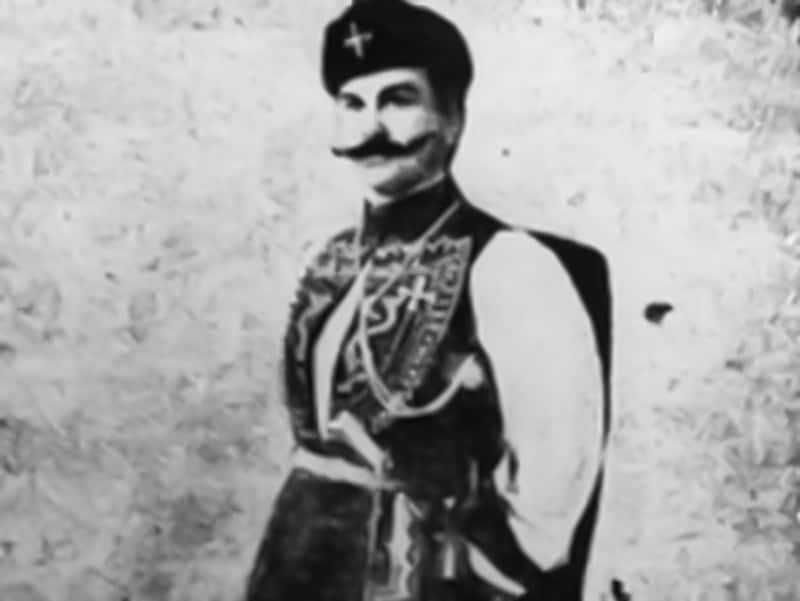 Wikimedia Commons Petros Manos, Aspasia's father.
Wikimedia Commons Petros Manos, Aspasia's father.
10. His Family Disapproved Of Him
Unsurprisingly, Alexander’s family was initially hostile to the idea that he should fall in love with someone so far below his station. They liked the idea that he might marry her even less. He might have been a rebel and the family’s shameful black sheep, but he was, after all, still a prince.

History's most fascinating stories and darkest secrets, delivered to your inbox daily.
11. He Thought He Was Safe From Responsibility
Alexander of Greece might have fallen head over heels in love with Manos—but that didn’t mean she was his for the taking. In fact, despite his title and even without competition from other suitors, Manos made Alexander work for her affections. From the sounds of it, Manos wasn’t convinced that Alexander could leave his rebellious ways behind.
But fate would force his hand.
12. He Was Far From The Crown
As the third in line for the Greek crown, it seemed unlikely that Alexander would ever ascend to the throne. He thought that he could leave all of that official business to his father and older brother while he simply enjoyed being a royal rebel. It’s not like his family had shown much affection for him anyway. But then the unthinkable happened.
13. His Grandfather Took One For The Team
One day, while out for an afternoon stroll near the White Tower in Thessaloniki, Alexander’s grandfather, George I, met with a horrifically dark fate. Out of nowhere, a madman by the name of Alexandros Schinas upended the whole Greek dynasty. With just one bullet to the heart of George I, he set off a chain of events that would end with Alexander on the throne.
14. He Inched Closer To The Throne
Shortly after his grandfather “took one for the team”, Alexander’s father, Constantine I, ascended to the throne. Much to Alexander’s discomfort, there were now only two people between him and the Greek crown; his increasingly unpopular father and his childless brother. At least he had Aspasia Manos—for the time being.
15. He Had To Win Her Over
Alexander of Greece knew that all of the royal houses of Europe, from Britain to Russia, would disapprove of a Manos—but he didn’t care. Blinded by love, he came up with a plan. Alexander traveled to Spetses where Manos was vacationing with her family, and dialed up the charm. Finally, Manos relented and confessed her own deep love for the prince. They would face the consequences together.
16. He Planned His Next Move Carefully
If he ever ascended to the throne, Alexander knew that the Greek government would never allow him to marry a commoner. Not if he was king. But, as a prince, he might just get away with it. After confessing their love for each other, Alexander and Manos began a whirlwind affair that would lead to a continent-wide scandal in the following years.

History's most fascinating stories and darkest secrets, delivered to your inbox daily.
17. He Made A Secret Proposal
Alexander knew what his family would say if he told them that he and Manos had started dating—so he didn’t tell them anything at all. The rebel prince did exactly what a rebellious prince would do in that situation. But then he took it to the next level. The couple entered into a secret engagement—a secret engagement that would nearly tear his family—and all of Greece—apart.
18. He Had Two Good Years
For two years, Alexander managed to keep his engagement to Manos secret. Everyone knew that the prince was running around with a commoner, but they all expected him to tire of her eventually. They had no idea that it was true love, bonded by a promise of marriage. Fate, however, was about to force their engagement out into the open.
19. He Narrowly Escaped An Inferno
The political situation in Greece under Alexander’s father, Constantine I, was becoming increasingly… combustible. One night in mid-July, an arsonist (surprisingly not Alexander) set fire to the Tatoi Palace where the entire Greek royal family was staying. Sadly, not everyone would make it out of the inferno alive.
20. He Went From The Fire Into The Frying Pan
If anyone knew how to handle a fire, it was Alexander. Even so, the flames were so hot that he only barely managed to escape with his life. The blaze consumed the palace so quickly that his mother and youngest sibling, Princess Katherine, had to jump through an open window. And the royal family’s situation only worsened from there.
21. He Dreaded Having To Wear The Crown
With the outbreak of WWI, Constantine I’s already tenuous hold on the Greek crown was beginning to wane. And the more that his grasp slipped, the closer Alexander came to his nightmare of having to assume monarchical responsibility himself. Worst of all, it would almost certainly spell the end of his secret engagement to Manos.
22. His Father Gave Up The Gig
Almost one year to the day after the burning of Tatoi Palace, Alexander’s worst nightmare came true. He found himself in the middle of yet another inferno. This time, it was a political one. After years of relentless pressure, the government forced Constantine I to abdicate the throne. Alexander’s embattled father had no choice but to agree. But with some conditions of his own.

History's most fascinating stories and darkest secrets, delivered to your inbox daily.
23. His Hopes Drifted Away
As part of his deal with the government, Constantine I agreed to go into self-imposed exile. If only Alexander had been so lucky. Unfortunately for the prince, the Greek throne kept inching closer and closer while his hopes of a secret marriage drifted further and furtherer. He had no idea, however, just how close he was to ascending the throne.
24. He Was The Last Resort
At first, the Greek government contemplated replacing Constantine I with his natural heir—Alexander’s older brother, George II. Ultimately, however, they decided that George II was too much like his father. Next, they turned their attention to Alexander’s uncle, Prince George, but he refused to betray his brother, the exiled king.
There was only one person left.
25. His Worst Nightmare Came True
Fate had finally arrived for Alexander. With no one left to turn to, the government decided that Alexander would have to assume the throne in place of his exiled father. They thought that, despite his rebellious habits, they would be able to control him. Of course, they had no idea about the sensational secret that he was hiding from the world.
26. His Father Called Him A Pretender
Reluctantly, Alexander agreed that he would do his royal duty and wear the crown—even if only to keep it warm. Before his self-imposed exile, Constantine I told Alexander that he shouldn’t think of himself as a real monarch.
Neither he nor George II had renounced their claims to the crown so Alexander was, technically, a placeholder prince. Sadly, none of them would be immune to scandal.
27. He Was Shaking Like A Leaf
Alexander was visibly shaken when he took his oath of office. As the prince pledged fealty to the Greek constitution in the ballroom of the palace, tears began to form in his eyes and his voice cracked up. But, to be honest, he probably wasn’t getting emotional for patriotic reasons. He was probably thinking about matters of the heart.
28. His Subjects Wouldn’t Let Him Go
After Alexander’s (unceremonious) coronation, the royal family decided to spend their last few days together at Tatoi Palace. But the people of Athens had another idea. The citizens of Athens, enraged that the government had exiled their monarch, encircled the Royal Palace and prevented Alexander and his family from leaving.

History's most fascinating stories and darkest secrets, delivered to your inbox daily.
29. He Made Another Narrow Escape
Even though Alexander and the rest of the royal family appreciated the people of Athens’ show of support, they knew the situation was bad. If Constantine I didn’t leave Greece, the atrocities of WWI would end up on Greek shores. Fortunately, they devised a plan to send a decoy through one gate while escaping through another.
30. He Confessed His Secret Engagement
Now that he was King of Greece—even if only in name—Alexander had to confess his darkest secret. After taking his oath of office, Alexander confided in his father that he had been secretly engaged to Aspasia Manos for years. He also said that he fully intended to marry her, no matter what the consequences were for him, the throne, or even the whole country.
31. He Promised To Wait
Constantine I probably wasn’t altogether surprised—but he was disappointed. The exiled king found it unthinkable that his son could marry a commoner. Nevertheless, he was in no position to issue orders. As a compromise, he told Alexander that he could marry Manos when all of the turmoil settled down. Whenever that was supposed to be.
32. He Bided His Time
Safely at Tatoi Palace, Alexander gave a tearful farewell to his family—but not before his father gave him a dire warning. He reminded Alexander that he was “king in name only” and that he couldn’t marry Manos until affairs had settled down. However, unbeknownst to Alexander and the rest of his family, things were about to get even more complicated.
33. He Said His Final Farewells
As Alexander of Greece waved farewell to his entire family, he had no way of knowing that it would be the last time that he would see any of them. In fact, in the coming months, Alexander’s chief political opponent, Eleftherios Venizelos, systemically exiled Alexander’s entire extended family. Aunts, uncles, cousins, and all. He was truly alone.
Except, of course, for Aspasia Manos.
34. His Enemies Labeled Him A Traitor
Alexander’s deep sense of isolation worsened as the months went on. Despite his differences with his family, they were still his family. Slowly but steadily, Venizelos enacted his brutal plan. He worked to replace even Alexander’s palace staff with anti-royalists. They removed portraits of his father and brazenly called him the “son of a traitor”.

History's most fascinating stories and darkest secrets, delivered to your inbox daily.
35. He Was Surrounded By Spies
It was bad enough that Alexander’s entire family was living in exile and that he was surrounded by anti-royalists. But he also became aware of spies in his midst. Venizelos ensured that his spies followed Alexander’s every move and intercepted all of his letters to and from his exiled father. But Alexander had a bigger secret to protect.
36. He Had Friends In Foreign Places
Alexander feared that Venizelos was trying to arrange a marriage between him and Princess Mary of the United Kingdom. Much to his relief, however, Venizelos’ foreign backers preferred Aspasia Manos as a match, in the hopes that it would make the puppet king happy. However, Alexander had promised his father—the real king—that he would wait.
37. He Couldn’t Wait Any Longer
Good things come to those who wait—but better things come to those who seize the moment. Even though he had agreed to wait to marry Manos, Alexander couldn’t deny his heart any longer—or suffer more isolation. He decided to throw caution to the wind and ask his father for permission to marry Manos without a moment’s delay.
38. He Had A Lot Of Missed Calls
Alexander traveled to Paris, hoping that he would be able to meet with his family while outside of Greece. But even beyond Greek borders, Venizelos controlled his every move. Alexander’s mother phoned his hotel only for one of Venizelos’ ministers to intercept the call. He informed the exiled queen, “His Majesty is sorry, but he cannot respond to the telephone”. Neither she or her son knew the heartbreaking truth. He had no idea his mother had even called.
39. He Had A Secret Ceremony
By 1919, Alexander of Greece had run out of patience—and allies. He reverted right back to his rebellious ways and decided to marry Manos at a secret ceremony, without seeking approval from anyone. However, the secret ceremony didn’t stay secret for long. Archimandrite Zacharistas, who officiated the ceremony, spilled the beans to Venizelos.
40. His Secrets Seeped Out
Venizelos was irate but, without the support of his foreign backers, there was nothing he could do to break up Alexander’s happy union. He allowed Manos and her mother to live at the Royal Palace so long as the marriage remained a secret from the public. When it comes to secrets, however, palace walls are somewhat…porous.

History's most fascinating stories and darkest secrets, delivered to your inbox daily.
41. He Lost His Wife
To Alexander’s dismay—and Venizelos’ delight—news of the secret marriage broke. A public outcry ensued. Venizelos claimed that he had no choice but to exile Manos from Greece for her own safety. And so, just like that, Alexander was once again all alone in the Royal Palace, surrounded by spies and enemies who plotted his downfall.
42. He Had A Delayed Honeymoon
After six months of isolation, Venizelos allowed Alexander to visit Manos in Paris so they could enjoy their honeymoon. But even this happy reunion ended in scandal and tragedy. While driving around Fontainebleu, Alexander and Manos witnessed a horrific car crash. Given his driving record, however, he may have been more than a witness.
43. He Was Down For “The Count”
According to the official reports of the accident, Alexander of Greece had swerved to avoid another vehicle that then crashed headlong into a tree. The passengers in the other vehicle were Count de Kergariou and his chauffeur. Alexander and Manos rushed to their aid and managed to drive the Count to the hospital, but they were too late.
44. He Never Had A Queen
With that gruesome end to their honeymoon, Alexander and Manos returned to Greece. Manos still couldn’t take up residence in the Royal Palace, so she moved to Tatoi Palace. To add insult to injury, Venizelos refused to give Manos the title of queen and instead only conferred upon her the lowly title of “Madame Manos”.
 Picryl
Picryl
45. He Was Into Monkey Business
After all of their trials, it seemed like Alexander and Manos had finally managed to settle into some semblance of normalcy. That’s when then fate threw a wrench in their wedded bliss. While walking through the grounds of Tatoi Palace, a Barbary macaque attacked Alexander’s dog, Fritz. The puppet king rushed to his dog’s defense—never expecting that things would spin as wildly out of control as they did.
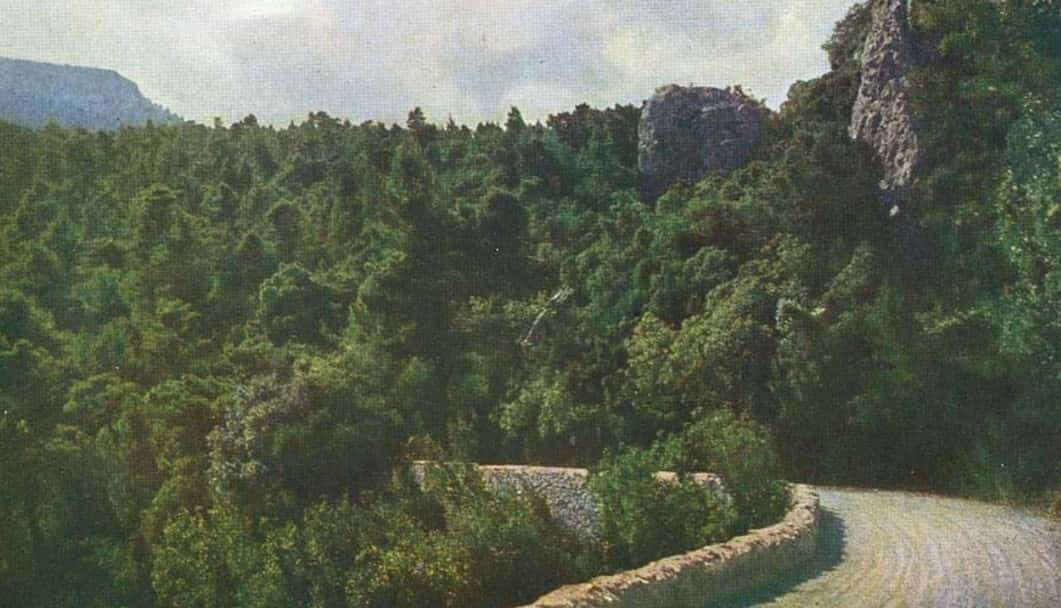 Picryl
Picryl
46. He Said It Was Just A Scratch
Alexander might have managed to save his dog, but it came at a tremendous cost. The monkey had given Alexander several deep and severe bite wounds to his legs and torso before his servants were able to attend to him. At first, Alexander brushed off the incident and only had his wounds cleaned and dressed without further medical care.
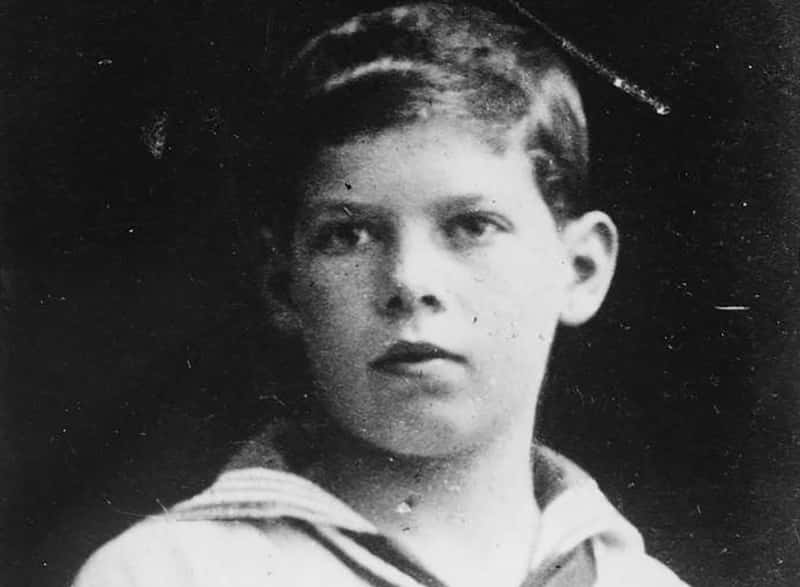 Picryl Alexander Of Greece as a child
Picryl Alexander Of Greece as a child

History's most fascinating stories and darkest secrets, delivered to your inbox daily.
47. He Was Nearly Crippled
That same evening, Alexander’s wounds began to show signs of severe infection. He developed an intense fever and other symptoms of sepsis. His medical staff believed that the only way to save him was to amputate his leg—but there was just one problem. None of them wanted to take responsibility for turning the King (puppet or not) into a cripple.
48. He Was Delusional
Alexander’s condition worsened over the following weeks. By October 19, his infection was so severe that he became delirious. Sensing that the end was coming, Alexander called out for his mother but, in one last stroke of cruelty, Venizelos refused to allow her to return from exile. Instead, he permitted only Alexander’s grandmother to visit.
49. He Was Alone At The End
By the time the dowager queen Olga arrived in Athens, Alexander had already succumbed to his wounds. But Venizelos saved the worst insult for last. He prevented Alexander’s family from returning to Greece for the funeral. Additionally, his inscription in the royal cemetery read, “son of the King of the Hellenes” instead of “King of the Hellenes”.
However, Alexander got his revenge from beyond the grave.
50. He Got His Revenge
Even though he had been a rebel and a puppet king, Alexander’s very presence had stabilized the country. His untimely demise led to the collapse of Venizelos’ government and the bloody Greco-Turkish conflict. Of the whole situation, Winston Churchill wrote, “it is perhaps no exaggeration to remark that a quarter of a million persons died of this monkey's bite”.

